Arthritis
How to submit an article:
- Registered users can submit any published journal article that has a unique DOI (Digital Object Identifier) name or link to Research Hub.
- For example, you can paste the full DOI link:
https://doi.org/10.1109/5.771073or just the DOI name:10.1109/5.771073into the field above and click submit. - The person who is first to submit a valid article to Research Hub will forever be credited for it, and every article submission earns you +6 Research Points.
Related Topics
Published research studies are articles that present the findings of original research that has undergone a peer-review process and has been made publicly available in scholarly journals, books or other media.

Re-evaluation of dietary interventions in rheumatoid arthritis: can we improve patient conversations around food choices?
2024 Feb 20 Rheumatology International Sharma P, Brown S, Sokoya EM
Review Article Diet Rheumatoid ArthritisDespite diet being key in shaping gut microbiota, it surprisingly does not impact the treatment outcomes in individuals with Rheumatoid Arthritis.

Intermittent fasting: A promising dietary intervention for autoimmune diseases
2023 Oct Autoimmunity Reviews Barati M, Ghahremani A, Namdar Ahmadabad H
Systematic Review Intermittent Fasting Type 1 Diabetes Autoimmune Diseases Rheumatoid ArthritisIntermittent fasting may potentially influence autoimmune diseases like type 1 diabetes and rheumatoid arthritis, by reducing inflammation and supporting cellular repair mechanisms.

Nutrition and its role in prevention and management of rheumatoid arthritis
2023 Jul Autoimmunity Reviews Nikiphorou E, Philippou E
Review Article Mediterranean Diet Sardine Omega-3 Fatty AcidsNutrition, particularly an anti-inflammatory Mediterranean diet supplemented with oily fish and omega-3 supplements, can potentially reduce inflammation and improve symptoms of rheumatoid arthritis.
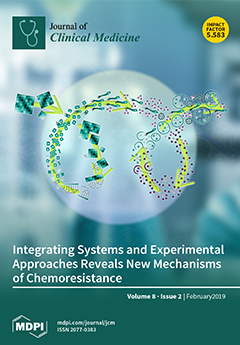
Intestinal Microbiota Reduction Followed by Fasting Discloses Microbial Triggering of Inflammation in Rheumatoid Arthritis
2023 Jun 28 Journal of Clinical Medicine Häupl T, Sörensen T, Smiljanovic B, Darcy M, Scheder-Bieschin J, Steckhan N, et al.
Clinical Study Inflammation Rheumatoid ArthritisRheumatoid arthritis-specific inflammation can be linked directly to the intestinal microbiota, thus, nutritional interventions against gut dysbiosis could function as a causal therapeutic approach.

Effectiveness of a Cucumber Extract Supplement on Articular Pain in Patients with Knee Osteoarthritis: A Randomized Double-Blind Controlled Clinical Trial
2022 Dec 30 Applied Sciences Pérez-Piñero S, Muñoz-Carrillo JC, Victoria-Montesinos D, García-Muñoz AM, Ávila-Gandía V, López-Román FJ
The study concludes that cucumber extract supplementation leads to a decrease in pain intensity, improvements in physical function, and decreased levels of inflammatory and cartilage degradation biomarkers.
Randomised Controlled Trial Knee Osteoarthritis CucumberResearch insights are moderated by the Research Hub team and offer an at-a-glance overview of interesting research findings.

2024 Rheumatology International
Despite diet being key in shaping gut microbiota, it surprisingly does not impact the treatment outcomes in individuals with Rheumatoid Arthritis.
Review Article Diet Rheumatoid Arthritis
Re-evaluation of dietary interventions in rheumatoid arthritis: can we improve patient conversations around food choices?
Sharma P, Brown S, Sokoya EM

2023 Autoimmunity Reviews
Intermittent fasting may potentially influence autoimmune diseases like type 1 diabetes and rheumatoid arthritis, by reducing inflammation and supporting cellular repair mechanisms.
Systematic Review Autoimmune Diseases Intermittent Fasting Rheumatoid Arthritis Type 1 Diabetes
Intermittent fasting: A promising dietary intervention for autoimmune diseases
Barati M, Ghahremani A, Namdar Ahmadabad H

2023 Autoimmunity Reviews
Nutrition, particularly an anti-inflammatory Mediterranean diet supplemented with oily fish and omega-3 supplements, can potentially reduce inflammation and improve symptoms of rheumatoid arthritis.
Review Article Mediterranean Diet Omega-3 Fatty Acids Sardine
Nutrition and its role in prevention and management of rheumatoid arthritis
Nikiphorou E, Philippou E

2023 Journal of Clinical Medicine
Rheumatoid arthritis-specific inflammation can be linked directly to the intestinal microbiota, thus, nutritional interventions against gut dysbiosis could function as a causal therapeutic approach.
Clinical Study Inflammation Rheumatoid Arthritis
Intestinal Microbiota Reduction Followed by Fasting Discloses Microbial Triggering of Inflammation in Rheumatoid Arthritis
Häupl T, Sörensen T, Smiljanovic B, Darcy M, Scheder-Bieschin J, Steckhan N, et al.

2022 Frontiers in Nutrition
Antioxidant therapy significantly reduces disease-related symptoms for patients with knee osteoarthritis.
Systematic Review Antioxidant
The effects of antioxidants on knee osteoarthritis: A systematic review and meta-analysis
Nejadhosseinian M, Djalalinia S, Haerian H, Alikhani M, Mansour A, Mousavian AH, et al.
Review Articles
Review articles summarise and critically evaluate the current state of research on a specific topic or field by synthesising multiple primary research studies.

Re-evaluation of dietary interventions in rheumatoid arthritis: can we improve patient conversations around food choices?
2024 Feb 20 Rheumatology International Sharma P, Brown S, Sokoya EM
Review Article Diet Rheumatoid ArthritisDespite diet being key in shaping gut microbiota, it surprisingly does not impact the treatment outcomes in individuals with Rheumatoid Arthritis.

Intermittent fasting: A promising dietary intervention for autoimmune diseases
2023 Oct Autoimmunity Reviews Barati M, Ghahremani A, Namdar Ahmadabad H
Systematic Review Intermittent Fasting Type 1 Diabetes Autoimmune Diseases Rheumatoid ArthritisIntermittent fasting may potentially influence autoimmune diseases like type 1 diabetes and rheumatoid arthritis, by reducing inflammation and supporting cellular repair mechanisms.

Nutrition and its role in prevention and management of rheumatoid arthritis
2023 Jul Autoimmunity Reviews Nikiphorou E, Philippou E
Review Article Mediterranean Diet Sardine Omega-3 Fatty AcidsNutrition, particularly an anti-inflammatory Mediterranean diet supplemented with oily fish and omega-3 supplements, can potentially reduce inflammation and improve symptoms of rheumatoid arthritis.

The effects of antioxidants on knee osteoarthritis: A systematic review and meta-analysis
2022 Dec 19 Frontiers in Nutrition Nejadhosseinian M, Djalalinia S, Haerian H, Alikhani M, Mansour A, Mousavian AH, et al.
Systematic Review Meta-Analysis AntioxidantAntioxidant therapy significantly reduces disease-related symptoms for patients with knee osteoarthritis.

The Effectiveness Comparison of Different Acupuncture-Related Therapies on Knee Osteoarthritis: A Meta-Analysis
2022 Jun 30 Evidence-Based Complementary and Alternative Medicine Ye C, Zhou J, Wang M, Xiao S, Lv A, Wang D
Systematic Review Meta-AnalysisAcupuncture and moxibustion therapies have greater therapeutic effectiveness for knee osteoarthritis than sham treatments and generic acupuncture/moxibustion treatments.
Clinical Trials
Clinical trials are research studies that involve people and are conducted to evaluate the safety and efficacy of new treatments or interventions, such as drugs, medical devices, or behavioural therapies.

Effectiveness of a Cucumber Extract Supplement on Articular Pain in Patients with Knee Osteoarthritis: A Randomized Double-Blind Controlled Clinical Trial
2022 Dec 30 Applied Sciences Pérez-Piñero S, Muñoz-Carrillo JC, Victoria-Montesinos D, García-Muñoz AM, Ávila-Gandía V, López-Román FJ
The study concludes that cucumber extract supplementation leads to a decrease in pain intensity, improvements in physical function, and decreased levels of inflammatory and cartilage degradation biomarkers.
Randomised Controlled Trial Knee Osteoarthritis Cucumber
To eat or not to eat—an exploratory randomized controlled trial on fasting and plant-based diet in rheumatoid arthritis (NutriFast-Study)
2022 Nov 02 Frontiers in Nutrition Hartmann AM, Dell'Oro M, Spoo M, Fischer JM, Steckhan N, Jeitler M, et al.
Randomised Controlled Trial Plant-Based Diet Cardiovascular Risk Rheumatoid ArthritisFasting followed by a plant-based diet and a standard diet both positively affected rheumatoid arthritis disease activity and cardiovascular risk factors, without discernible differences.
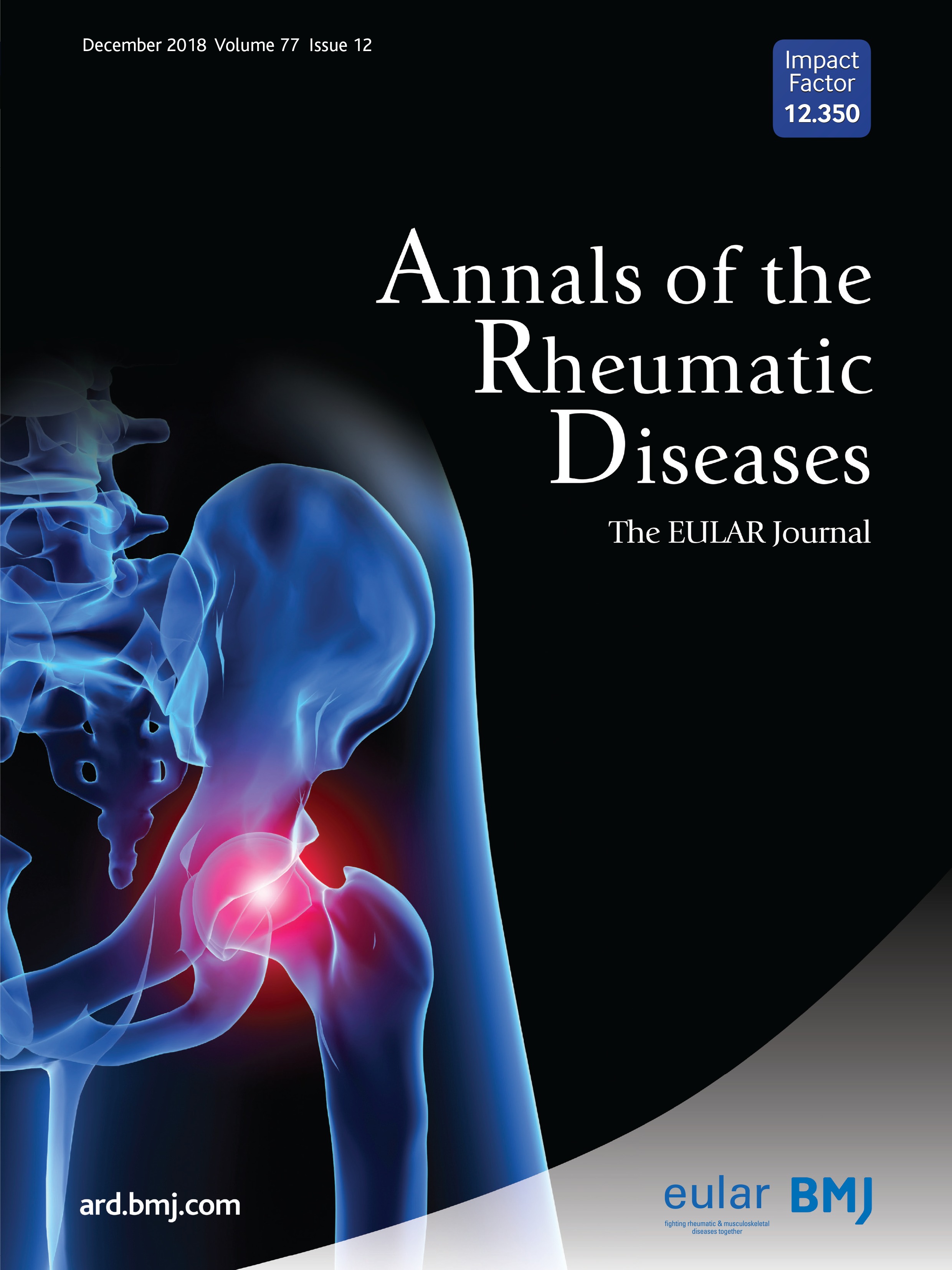
POS0583 RHEUMATOID ARTHRITIS BENEFITS FROM FASTING AND PLANT-BASED DIET: AN EXPLORATORY RANDOMIZED CONTROLLED TRIAL (NUTRIFAST)
2022 May 23 Annals of the Rheumatic Diseases Hartmann AM, Kandil FI, Steckhan N, Häupl T, Kessler CS, Michalsen A, et al.
Randomised Controlled Trial Plant-Based Diet Intermittent Fasting Rheumatoid ArthritisFasting followed by a plant-based diet positively impacts disease activity and cardiovascular risk factors in rheumatoid arthritis patients.
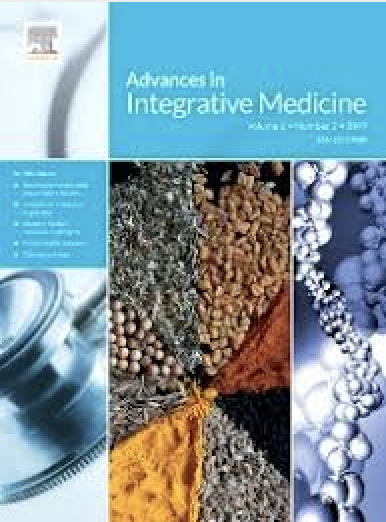
Effects of pomegranate (Punica granatum L.) peel extract supplementation on serum lipid profile and oxidative stress in obese women with knee osteoarthritis: A double blind, randomized, placebo controlled study
2021 May Advances in Integrative Medicine Haghighian MK, Rafraf M, Hemmati S, Haghravan S, Asghari-Jafarabadi M
Randomised Controlled Trial Knee Osteoarthritis Pomegranate PeelPomegranate peel extract supplementation can decrease total cholesterol and triglyceride levels while boosting antioxidant status in obese women with knee osteoarthritis.
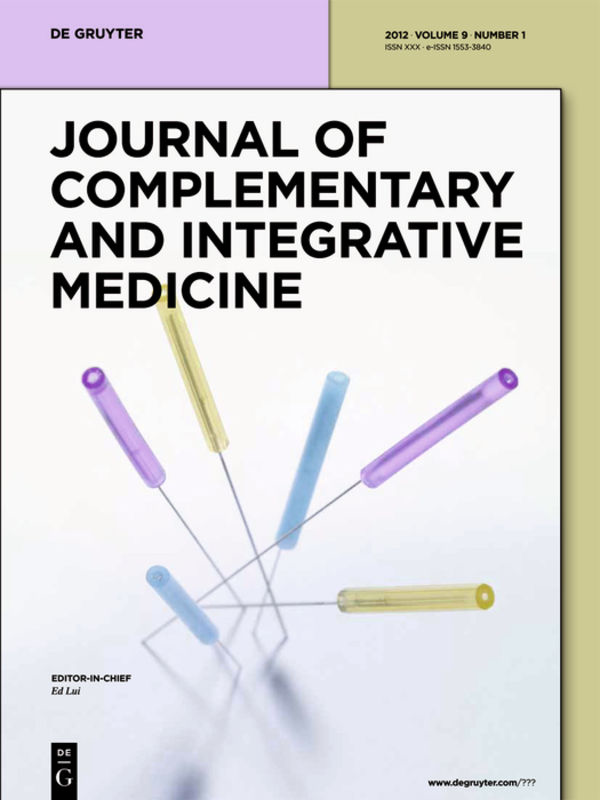
Avocado/soy unsaponifiables can redress the balance between serum antioxidant and oxidant levels in patients with osteoarthritis: a double-blind, randomized, placebo-controlled, cross-over study
2021 Apr 02 Journal of Complementary and Integrative Medicine Jangravi Z, Basereh S, Zaree Mahmoudabadi A, Saberi M, Alishiri GH, Korani M
Randomised Controlled Trial Soy Unsaponifiable Osteoarthritis Antioxidant AvocadoAvocado/soy unsaponifiables effectively treat osteoarthritis by controlling the balance between oxidant and antioxidant molecular markers.
Study Protocols
Published study protocols are detailed plans that outline the objectives, methodology, statistical analyses, and organisation of a research study that have been made publicly available for others to review and use as a reference.

Acupuncture combined with traditional Chinese medicine for knee osteoarthritis: A protocol for systematic review and meta-analysis
2022 Dec 16 Medicine Wang Y, Lu Q, Guo H, Sun J, Li X, Guan H, et al.
This meta-analysis further established the efficacy of acupuncture combined with traditional Chinese medicine in the treatment of KOA. This meta-analysis aims to investigate the efficacy of acupuncture combined with traditional Chinese medicine on patients with KOA and provide reliable evidence. To provide more options for clinicians and patients in the treatment of KOA.
Study Protocol Acupuncture Chinese Herbal Medicine Knee Osteoarthritis
Efficacy and safety of Chinese herbal medicine Danggui Sini decoction for knee osteoarthritis: A protocol for systematic review and meta-analysis
2022 Nov 18 Medicine Zhou X, Xiang KM, Li J, Yang G, Wang Y, Xia H, et al.
This study will compare the effects of DGSND and any other different methods on patients with KOA to provide high-quality, evidence-based clinical recommendations. The study provides a trustable clinical foundation for DGSND in the treatment of KOA.
Study Protocol Dang Gui Si Ni Dang Gui Si Ni Decoction Chinese Herbal Medicine
Chinese herbal medicine Xianling Gubao capsule for knee osteoarthritis
2022 Jan 21 Medicine Liu W, Xu D, Qi Q, Li J, Ou L
A high-quality evidence of XLGBC for the treatment of KOA will be generated from the aspects of safety and efficacy. This systematic review will provide evidence to help us confirm the clinical efficacy of XLGBC in the treatment of KOA.
Study Protocol Chinese Herbal Medicine Knee Osteoarthritis Xian Ling Gu Bao Formula
Effectiveness and safety of Tai Chi for chronic pain of knee osteoarthritis
2022 Jan 14 Medicine Guo G, Wu B, Xie S, Xu J, Zhou X, Wu G, et al.
This proposed systematic review and meta-analysis will evaluate the existing evidence on the effectiveness and safety of Tai Chi for KOA patients with CP.
Study Protocol Chronic Pain Knee Osteoarthritis
Comparative efficacy and safety of Chinese herbal medicine for knee osteoarthritis
2021 Jul 23 Medicine Yang L, Wu B, Ma L, Li Z, Xiong H
This study will provide a reliable evidence to assess effectiveness and safety of CHM for knee OA, which may provide guidance for clinical practice.
Study Protocol Chinese Herbal MedicinePresentation Slides

Review Article
Despite diet being key in shaping gut microbiota, it surprisingly does not impact the treatment outcomes in individuals with Rheumatoid Arthritis.
Sharma P, Brown S, Sokoya EM

Systematic Review
Intermittent fasting may potentially influence autoimmune diseases like type 1 diabetes and rheumatoid arthritis, by reducing inflammation and supporting cellular repair mechanisms.
Barati M, Ghahremani A, Namdar Ahmadabad H

Review Article
Nutrition, particularly an anti-inflammatory Mediterranean diet supplemented with oily fish and omega-3 supplements, can potentially reduce inflammation and improve symptoms of rheumatoid arthritis.
Nikiphorou E, Philippou E

Clinical Study
Rheumatoid arthritis-specific inflammation can be linked directly to the intestinal microbiota, thus, nutritional interventions against gut dysbiosis could function as a causal therapeutic approach.
Häupl T, Sörensen T, Smiljanovic B, Darcy M, Scheder-Bieschin J, Steckhan N, Hartmann AM, Koppold DA, Stuhlmüller B, Skriner K, Walewska BM, Hoppe B, Bonin M, Burmester GR, Schendel P, Feist E, Liere K, Meixner M, Kessler C, Grützkau A, Michalsen A

Systematic Review
Antioxidant therapy significantly reduces disease-related symptoms for patients with knee osteoarthritis.
Nejadhosseinian M, Djalalinia S, Haerian H, Alikhani M, Mansour A, Mousavian AH, Mardani-Fard HA, Kasaeian A, Faezi ST

Randomised Controlled Trial
Fasting followed by a plant-based diet and a standard diet both positively affected rheumatoid arthritis disease activity and cardiovascular risk factors, without discernible differences.
Hartmann AM, Dell'Oro M, Spoo M, Fischer JM, Steckhan N, Jeitler M, Häupl T, Kandil FI, Michalsen A, Koppold-Liebscher DA, Kessler CS

Systematic Review
Acupuncture and moxibustion therapies have greater therapeutic effectiveness for knee osteoarthritis than sham treatments and generic acupuncture/moxibustion treatments.
Ye C, Zhou J, Wang M, Xiao S, Lv A, Wang D

Randomised Controlled Trial
Fasting followed by a plant-based diet positively impacts disease activity and cardiovascular risk factors in rheumatoid arthritis patients.
Hartmann AM, Kandil FI, Steckhan N, Häupl T, Kessler CS, Michalsen A, Koppold-Liebscher DA
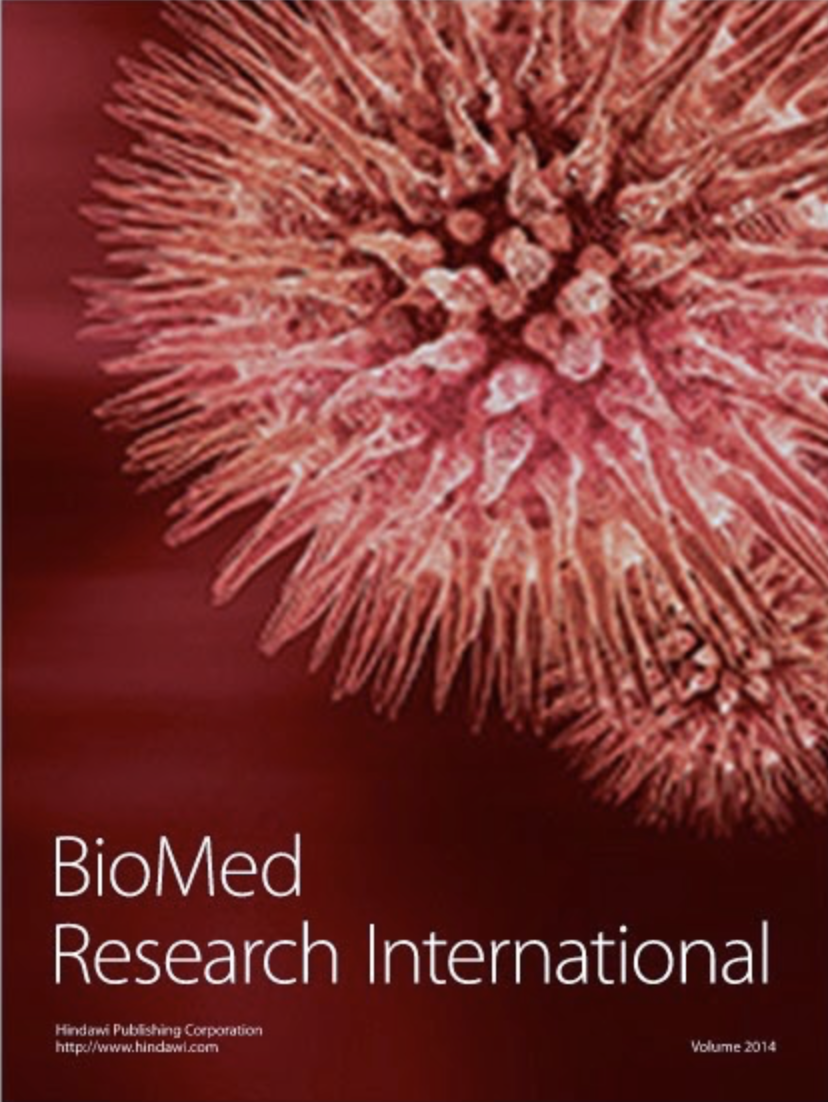
Systematic Review
Acupuncture can reduce pain and improve functional activities in patients with knee osteoarthritis, proving particularly beneficial for chronic sufferers and enhancing their quality of life.
Tian H, Huang L, Sun M, Xu G, He J, Zhou Z, Huang F, Liu Y, Liang F
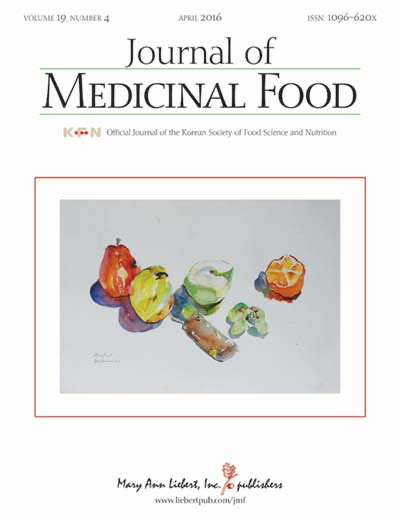
Review Article
Omega-3 fatty acids can help prevent and manage chronic inflammatory diseases, including ulcerative colitis and rheumatoid arthritis, through influencing gut microbiota.
Zorgetto-Pinheiro VA, Machate DJ, Figueiredo PS, Marcelino G, Hiane PA, Pott A, Guimarães RCA, Bogo D
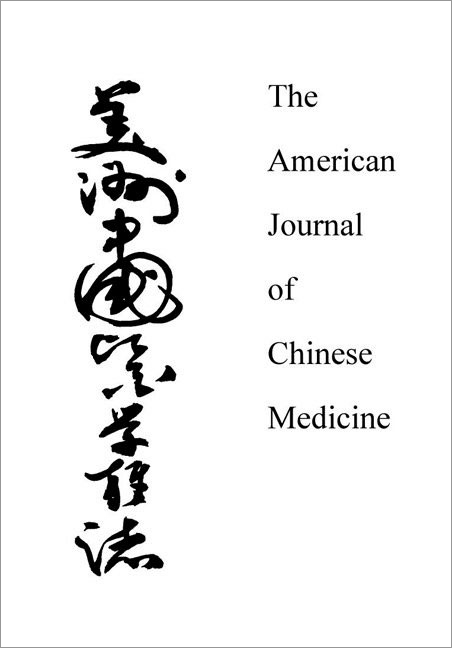
Review Article
Acupuncture shows promising results in managing autoimmune diseases by potentially regulating immune responses.
Jing Wang, Fangyi Zhu, Wei Huang, Zhengyi Chen, Ping Zhao, Yanting Lei, Yumei Liu, Xijun Liu, Bo Sun, Hulun Li

Cohort Study
Moderate consumption of fish, particularly oily fish, may decrease rheumatoid arthritis risk, potentially countering the increased risk induced by smoking.
Nguyen Y, Salliot C, Mariette X, Boutron-Ruault MC, Seror R

Systematic Review
Higher consumption of coffee and specifically decaffeinated coffee raises the risk of rheumatoid arthritis, while caffeinated coffee, tea and caffeine intake doesn't.
Asoudeh F, Dashti F, Jayedi A, Hemmati A, Fadel A, Mohammadi H
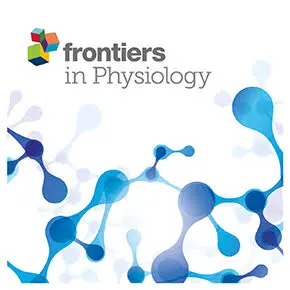
Systematic Review
Moxibustion, a form of traditional Chinese medicine, appears to be an effective and safe treatment for knee osteoarthritis.
Yin S, Zhu F, Li Z, Che D, Li L, Feng J, Zhang L, Huo Z

Experimental Study
PIASCLEDINE-ExpASU®, a type of avocado/soybean unsaponifiable product, displays superior pharmacological activity due to its unique composition, including a high inhibitory effect on pro-inflammatory factors.
Lambert C, Bellemère G, Boyer G, Ponelle F, Bauer T, Legeny MC, Baudouin C, Henrotin Y

Cohort Study
Increased plasma omega-3 levels, which are associated with genetically higher intake of omega-3, contribute to a higher risk of rheumatoid arthritis among people of European ancestry.
Zhu G, Zhou S, Xu Y, Gao R, Li H, Zhai B, Liu X, He Y, Wang X, Han G, Su W, Wang R
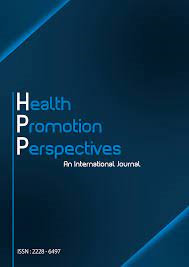
Systematic Review
Pomegranate has been confirmed to improve clinical features and reduce inflammatory, oxidative stress, and apoptosis markers in osteoarthritis.
Malek Mahdavi A, Javadivala Z

Review Article
The ketogenic diet, by reducing carbohydrate intake, shows potential in weight loss, insulin requirement reduction, and mitigation of inflammatory symptoms in patients with inflammatory arthritis.
Ciaffi J, Mitselman D, Mancarella L, Brusi V, Lisi L, Ruscitti P, Cipriani P, Meliconi R, Giacomelli R, Borghi C, Ursini F
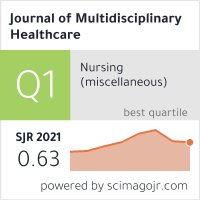
Cohort Study
Adding Chinese herbal medicines to routine treatment was found to be related to lower fracture risk in rheumatoid arthritis patients.
Liao HH, Livneh H, Chung YJ, Lin CH, Lai NS, Yen HR, Tsai TY

Systematic Review
Turmeric curcuminoids are associated with better pain relief than NSAIDs in knee osteoarthritis.
An-Fang Hsiao, Yi-Chieh Lien, I-Shiang Tzeng, Chien-Ting Liu, Sheng-Hsun Chou, Yi-Shiung Horng

Meta-Analysis
Anti-inflammatory diets can lead to significantly lower levels of pain than regular diets for those with rheumatoid arthritis.
Schönenberger KA, Schüpfer AC, Gloy VL, Hasler P, Stanga Z, Kaegi-Braun N, Reber E

Cohort Study
Intermittent fasting during Ramadan can lead to rapid improvement of rheumatoid arthritis activity, with positive effects lasting up to three months.
Ben Nessib D, Maatallah K, Ferjani H, Triki W, Kaffel D, Hamdi W

Review Article
Yu Xing Cao, a traditional Asian medicine, demonstrates organ protection, immune regulation, and anti-tumour activity when analysed in modern research.
Wu Z, Deng X, Hu Q, Xiao X, Jiang J, Ma X, Wu M
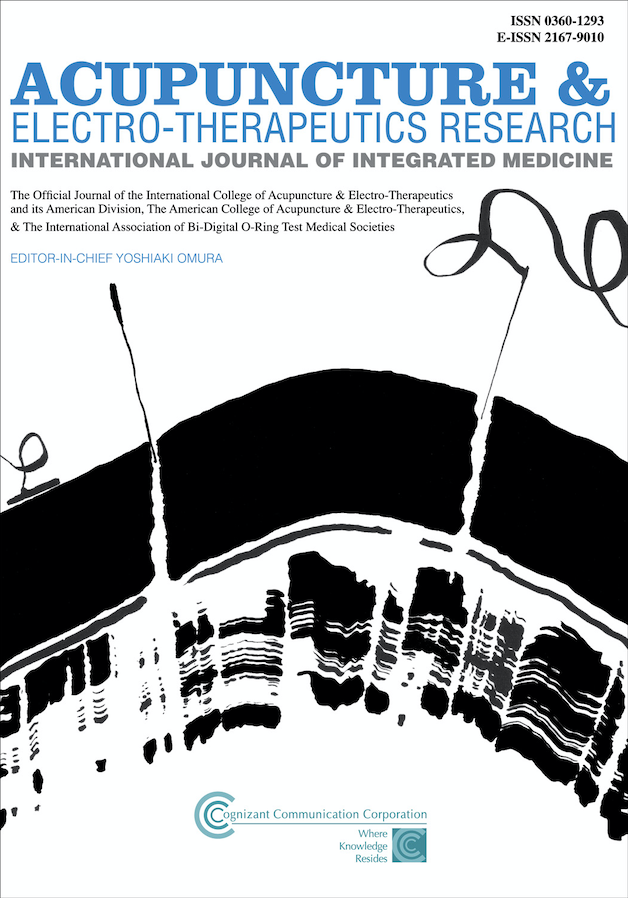
Systematic Review
Treatment of rheumatoid arthritis using acupuncture with Western medicine was associated with higher efficacy and lower risks than treatment with Western medicine alone.
Huo X, Liang L, Ding X, Bihazi A, Xu H
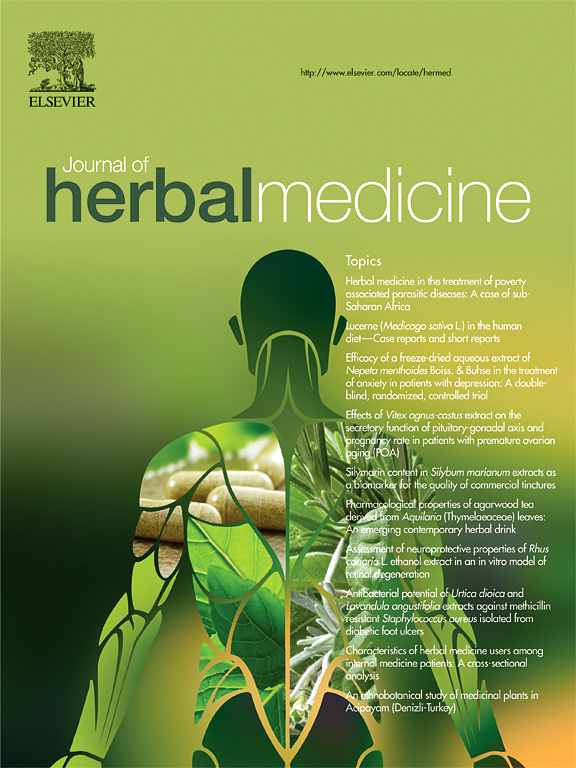
Clinical Study
Green tea therapy can significantly improve rheumatoid arthritis symptoms, correlating with changes in specific circulating serum molecules, miR-125b and miR-146a.
Al-Rawaf HA, Alghadir AH, Gabr SA

Randomised Controlled Trial
Pomegranate peel extract supplementation can decrease total cholesterol and triglyceride levels while boosting antioxidant status in obese women with knee osteoarthritis.
Haghighian MK, Rafraf M, Hemmati S, Haghravan S, Asghari-Jafarabadi M

Randomised Controlled Trial
Avocado/soy unsaponifiables effectively treat osteoarthritis by controlling the balance between oxidant and antioxidant molecular markers.
Jangravi Z, Basereh S, Zaree Mahmoudabadi A, Saberi M, Alishiri GH, Korani M

Adding acupuncture to conventional therapy may decrease the subsequent endometriosis risk in female rheumatoid arthritis patients.
Chen Wei-Jen, Livneh Hanoch, Hsu Chien-Hui, Hu Ying-To, Lai Ning-Sheng, Guo How-Ran, Tsai Tzung-Yi
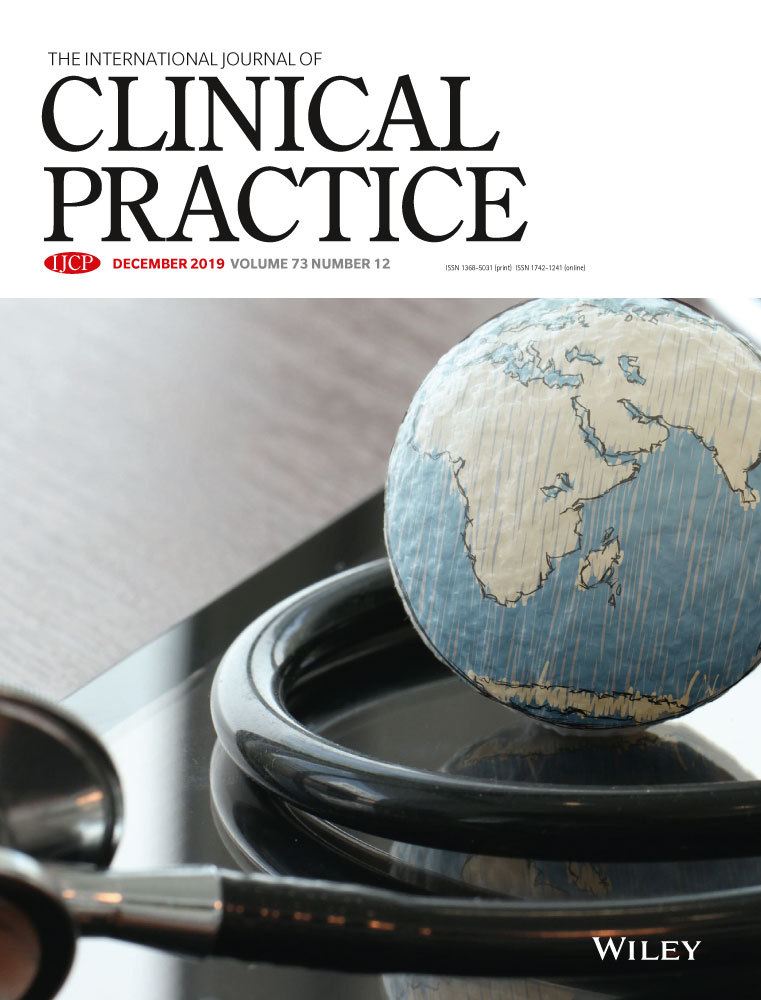
Systematic Review
Pomegranate consumption can effectively manage rheumatoid arthritis complications by reducing inflammation and oxidative stress without adverse effects.
Malek Mahdavi A, Seyedsadjadi N, Javadivala Z
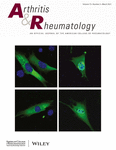
Randomised Controlled Trial
Intensive electroacupuncture appears to reduce pain and improve function in knee osteoarthritis patients more effectively than sham acupuncture.
Tu JF, Yang JW, Shi GX, Yu ZS, Li JL, Lin LL, Du YZ, Yu XG, Hu H, Liu ZS, Jia CS, Wang LQ, Zhao JJ, Wang J, Wang T, Wang Y, Wang TQ, Zhang N, Zou X, Wang Y, Shao JK, Liu CZ
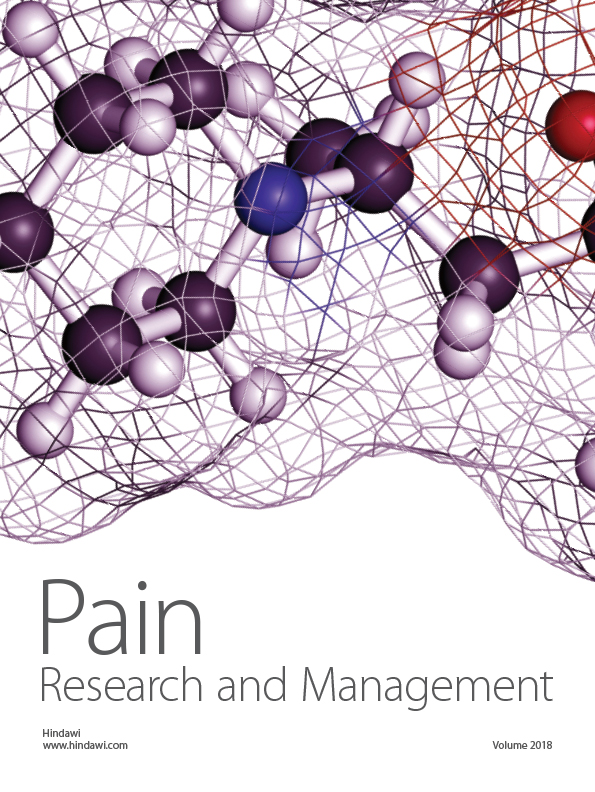
Systematic Review
The use of various treatments of traditional Chinese medicine can significantly improve the level of the total effective rate and reduce the occurrence of recurrence rate in the later stage of osteoarthritis treatment.
Wang L, Zhang XF, Zhang X, Guo DY, Duan YW, Wang ZC, Pei LS, Ru H, Cheng JX, Shi YJ, Zou JB
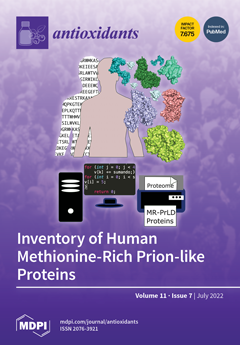
Review Article
Green tea catechins potentially contribute to maintaining joint and skeletal muscle health, mitigating symptoms of osteoarthritis and sarcopenia.
Luk HY, Appell C, Chyu MC, Chen CH, Wang CY, Yang RS, Shen CL

Review Article
Beverages, through their diverse nutritional contents, have notable effects on rheumatoid arthritis progression by interacting with immune signaling pathways and altering the microbiome.
Dey M, Cutolo M, Nikiphorou E
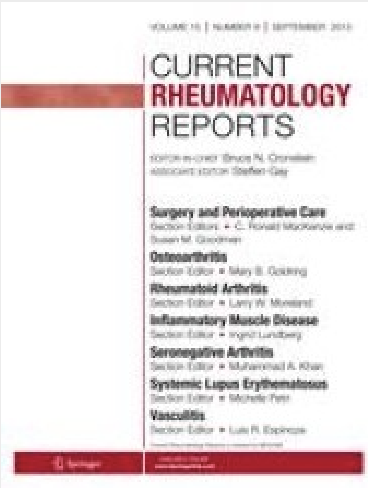
Systematic Review
The majority of studies concluded the superiority of short-term analgesic effects over various controls and suggested that acupuncture may be efficacious for chronic musculoskeletal pain.
Zhang YJ, Wang C
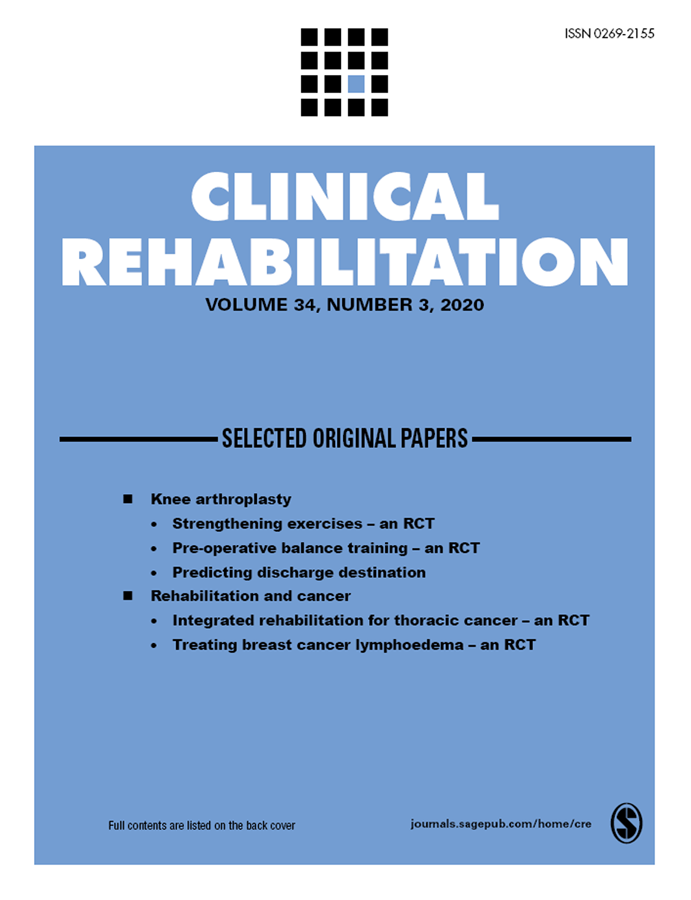
Systematic Review
Tai Chi exercise was beneficial for ameliorating physical and mental health of patients with knee osteoarthritis and should be available as an alternative non-pharmacological therapy in rehabilitation programmes.
Hu L, Wang Y, Liu X, Ji X, Ma Y, Man S, Hu Z, Cheng J, Huang F.
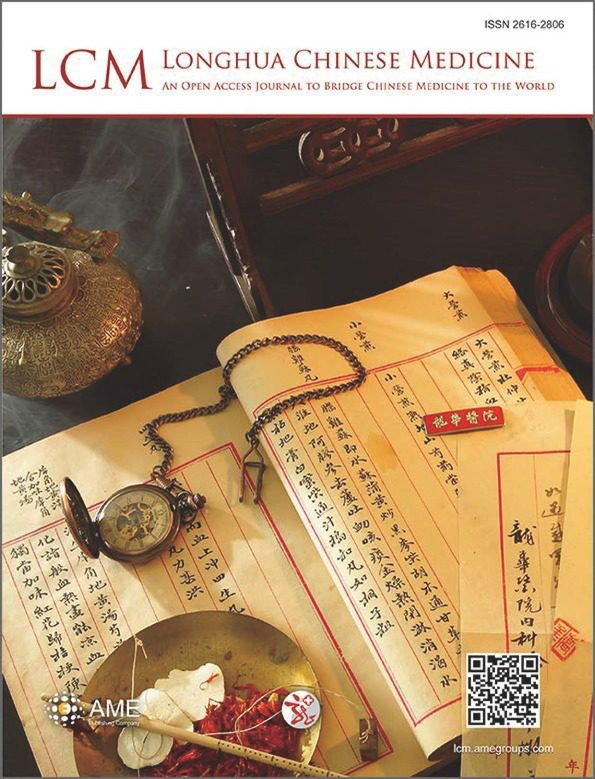
Review Article
Green tea and its compounds, especially catechins, may potentially prevent and treat osteoarthritis due to their potent antioxidant and anti-inflammatory properties.
Barbalho SM, Goulart RA, Buglio DS, Araujo AC, Guiguer EL
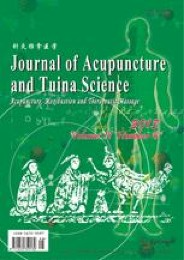
Systematic Review
In the treatment of knee osteoarthritis, the acupuncture group had significant advantages over sham acupuncture or no-acupuncture groups in relieving pain and improving physical function.
Wang, Tt., Liu, Y., Ning, Zy. et al.
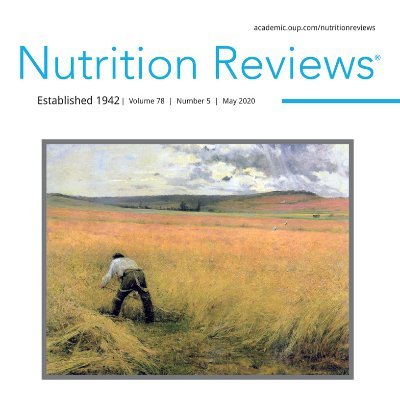
Systematic Review
High doses of omega-3 fatty acids, Vitamin D supplementation, and dietary sodium restriction showed significant improvement in reducing rheumatoid arthritis symptoms.
Philippou E, Petersson SD, Rodomar C, Nikiphorou E

Review Article
Ginger, through various methods, exhibits promising pain reduction effects for conditions such as dysmenorrhea, muscle soreness, osteoarthritis, low back pain, and migraines.
Rondanelli M, Fossari F, Vecchio V, Gasparri C, Peroni G, Spadaccini D, Riva A, Petrangolini G, Iannello G, Nichetti M, Infantino V, Perna S
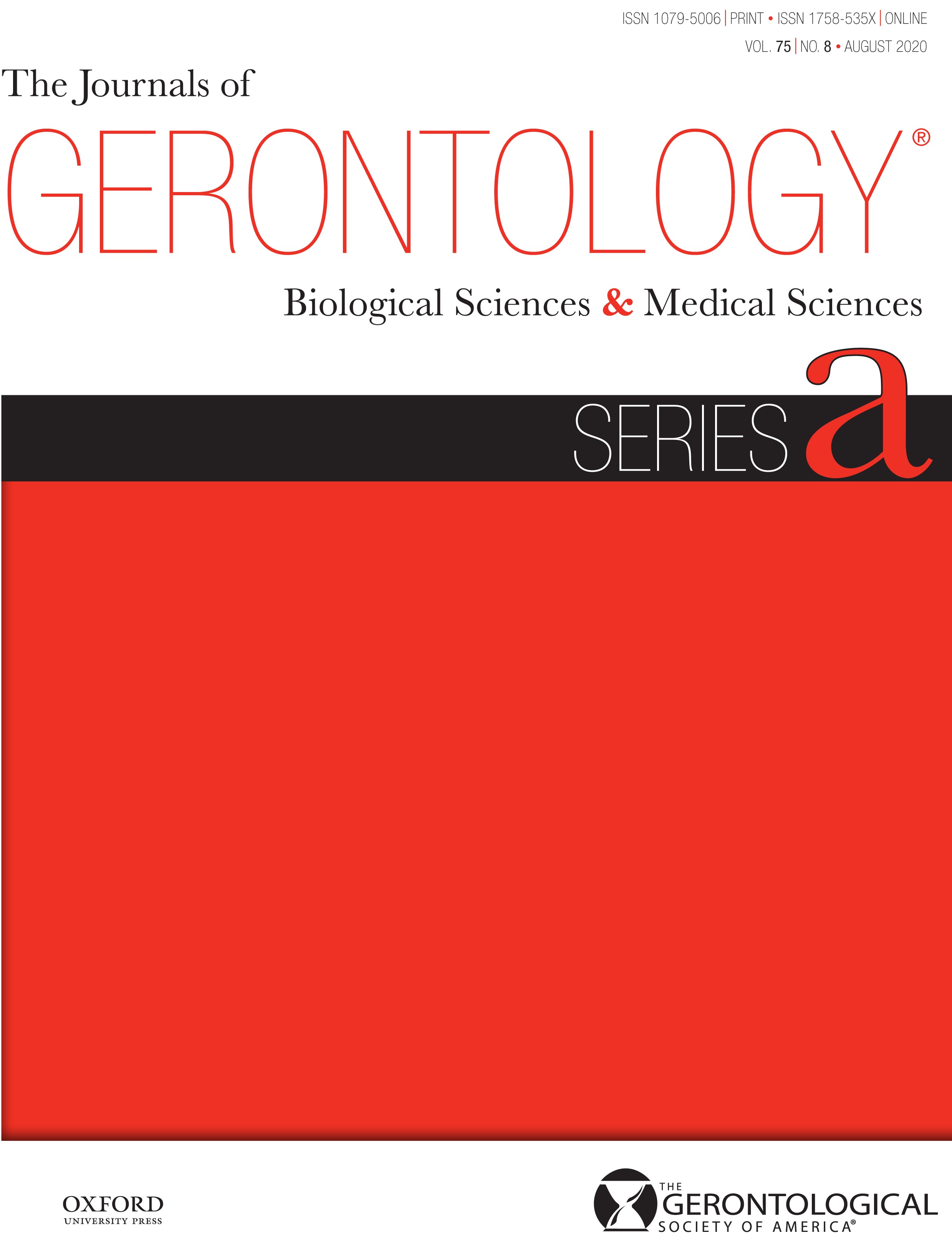
Cohort Study
Certain oxylipins, which are bioactive lipids derived from omega-6 and omega-3 polyunsaturated fatty acids, are potential key influencers in arthritis in older adults.
Coras R, Pedersen B, Narasimhan R, Brandy A, Mateo L, Prior-Español A, Kavanaugh A, Armando AM, Jain M, Quehenberger O, Martínez-Morillo M, Guma M

Cohort Study
Ramadan fasting can induce rapid improvement in rheumatoid arthritis and spondyloarthritis activity without significantly affecting medication compliance or tolerance.
Ben Nessib D, Maatallah K, Ferjani H, Kaffel D, Hamdi W

Randomised Controlled Trial
Electroacupuncture might provide stronger impact on knee osteoarthritis than manual acupuncture, though both methods are safe and feasible treatments.
Wang TQ, Li YT, Wang LQ, Shi GX, Tu JF, Yang JW, Hou YQ, Lin LL, Sun N, Zhao JJ, Hou HK, Liu CZ

Review Article
Omega 3 fatty acids can counter muscle lipotoxicity and prevent comorbidities in patients with rheumatoid arthritis, supporting muscle health and reducing cardiometabolic disease risk.
Lanchais K, Capel F, Tournadre A
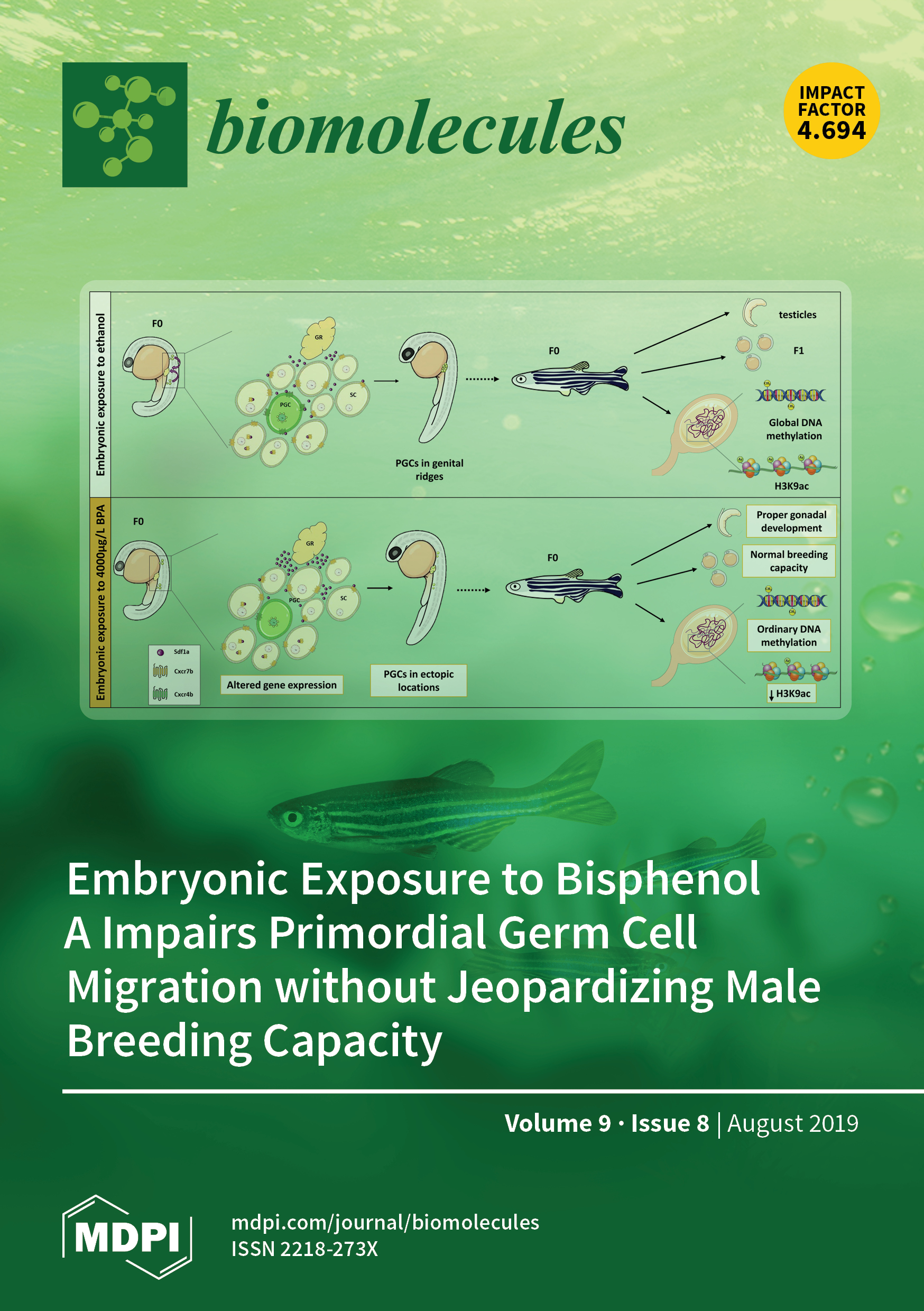
Review Article
Avocado and soybean unsaponifiables may effectively reduce inflammation and symptoms related to osteoarthritis, autoimmune diseases, and menopause.
Salehi B, Rescigno A, Dettori T, Calina D, Docea AO, Singh L, Cebeci F, Özçelik B, Bhia M, Dowlati Beirami A, Sharifi-Rad J, Sharopov F, C. Cho W, Martins N

Review Article
Omega-3 fatty acids, essential for human health, can reduce inflammation and may mitigate symptoms in rheumatoid arthritis, particularly joint swelling and tenderness.
Kostoglou-Athanassiou I, Athanassiou L, Athanassiou P
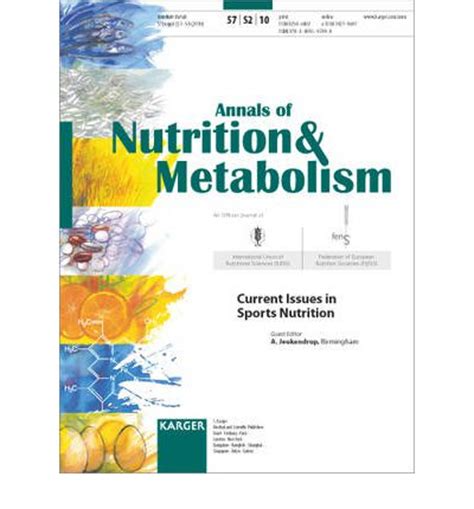
Cohort Study
High tea consumption is inversely associated with disease activity in rheumatoid arthritis, particularly beneficial in female patients, non-smokers, and elders.
Jin J, Li J, Gan Y, Liu J, Zhao X, Chen J, Zhang R, Zhong Y, Chen X, Wu L, Xiang X, Zhou Y, He J, Li R, Guo J, Li Z

Review Article
In 2017, dozens of Chinese proprietary medicines were employed as rheumatoid arthritis treatments and resulted in good outcomes, according to the National Health Insurance Directory of China.
Hu-DanPana, YaoXiao, Wan-YingWang, Ru-TongRen,Elaine Lai-Han,Leung, LiangLiua
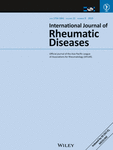
Systematic Review
Avocado-soybean unsaponifiables treatment is effective in reducing knee osteoarthritis symptoms without increasing adverse events, contrary to those with hip osteoarthritis.
Simental‐Mendía M, Sánchez‐García A, Acosta‐Olivo CA, Vilchez‐Cavazos F, Osuna‐Garate J, Peña‐Martínez VM, Simental‐Mendía LE

Systematic Review
According to high-quality outcomes, acupuncture had more total effective rate, short-term effective rate, and less adverse reactions than western medicine in treating knee osteoarthritis.
Li J, Li YX, Luo LJ, Ye J, Zhong DL, Xiao QW, Zheng H, Geng CM, Jin RJ, Liang FR
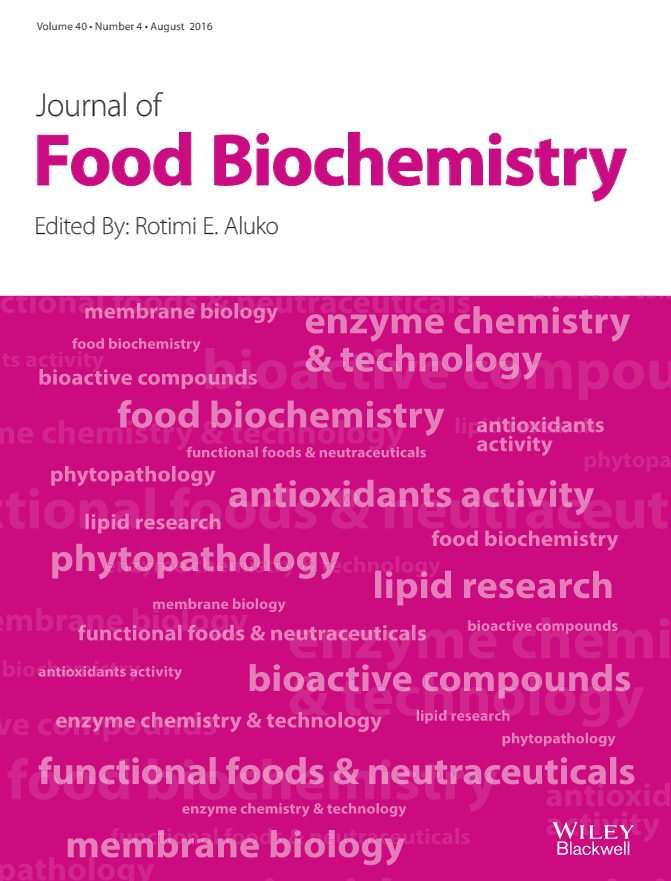
Animal Study
Pomegranate rind extract has been found to decrease pain and inflammation, suggesting it could contribute to treating rheumatoid arthritis.
Karwasra R, Singh S, Sharma D, Sharma S, Sharma N, Khanna K
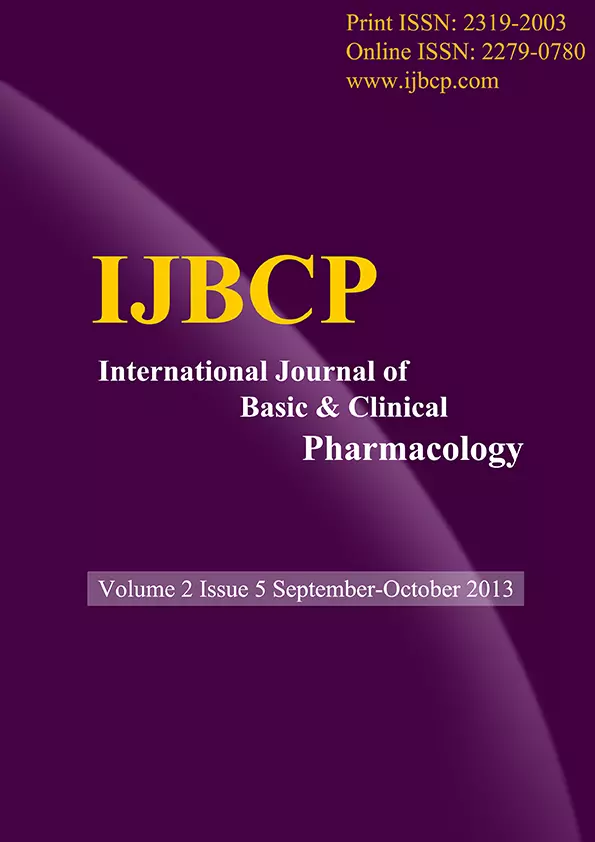
Randomised Controlled Trial
Avocado oil supplement combined with exercise improves joint function in osteoarthritis over traditional treatments like NSAIDS and multivitamins with exercise.
Chandra A, Kumar A, Kumar M, Kumar M, Dikshit H
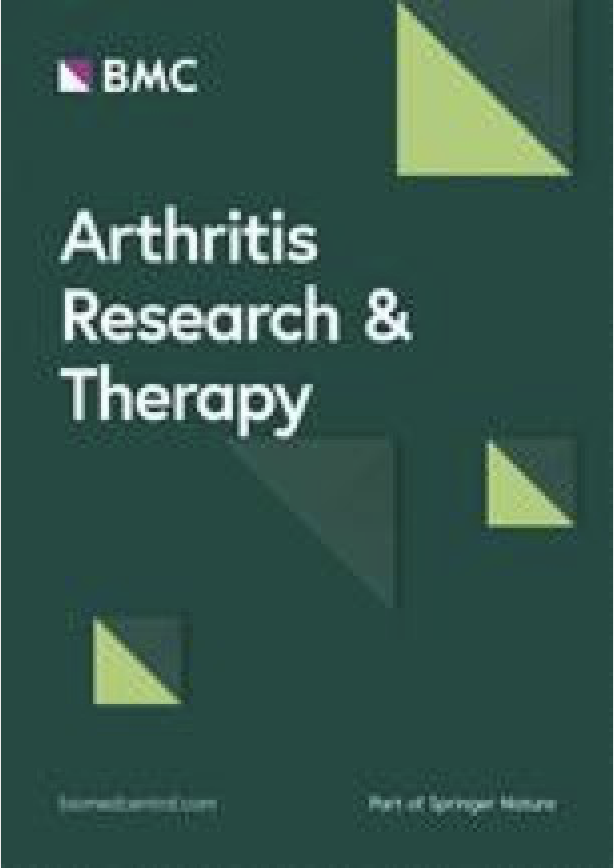
Randomised Controlled Trial
Strong electroacupuncture for at least two weeks improves chronic pain management in knee osteoarthritis patients better than weak or sham electroacupuncture.
Lv, Z., Shen, L., Zhu, B. et al.

Cohort Study
Fish intake does not majorly impact overall rheumatoid arthritis risk but can lessen the association of smoking for rheumatoid arthritis diagnosed under 55 years of age.
Sparks JA, O’Reilly J, Barbhaiya M, Tedeschi SK, Malspeis S, Lu B, Willett WC, Costenbader KH, Karlson EW
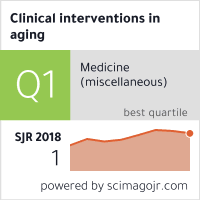
Randomised Controlled Trial
The extract from cucumber, Q-Actin, is effective in reducing moderate knee osteoarthritis related pain and potentially in managing knee pain, stiffness, and physical functions.
Nash RJ, Azantsa BKG, Sharp H, Shanmugham V

Systematic Review
Chili pepper has preventive and therapeutic properties for many ailments such as different types of cancer, rheumatism, stiff joints, bronchitis and chest colds with cough and headache, arthritis, heart arrhythmias and used as stomachic.
Saleh BK, Omer A, Teweldemedhin B.
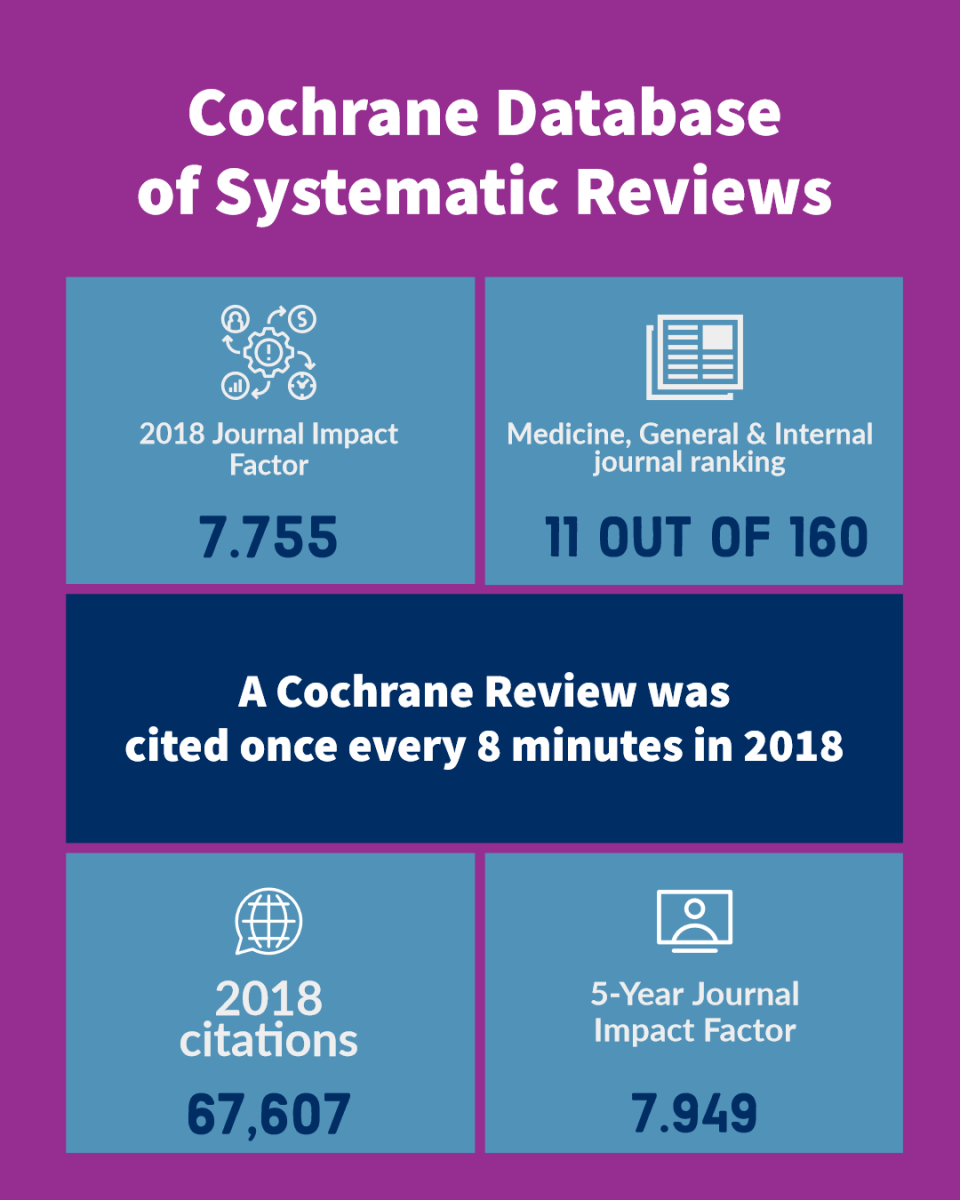
Systematic Review
In people with hip osteoarthritis, at close to 8 weeks, acupuncture plus routine primary physician care may improve pain and function compared to routine primary physician care alone.
Manheimer E, Cheng K, Wieland LS, Shen X, Lao L, Guo M, Berman BM.
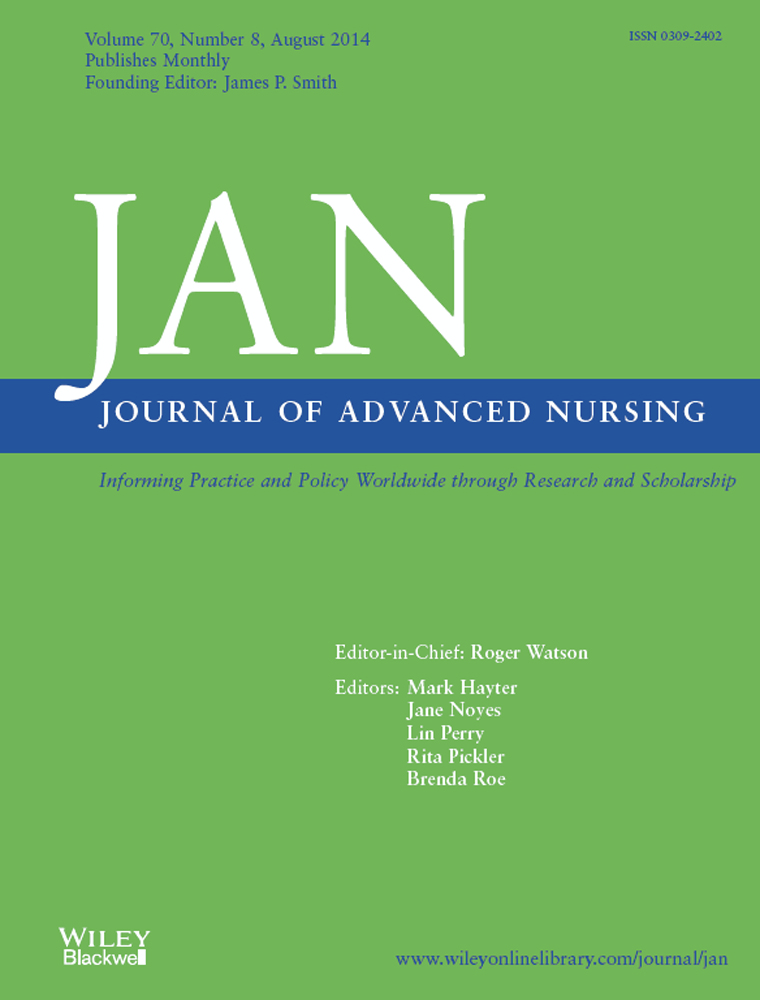
Systematic Review
Skin-patches of Chinese herbal medicine combined with Western medicine seemed to be more effective than Western medicine alone to reduce the pain scores of patients with acute gouty arthritis.
Wang HR, Fu Q, Liu Z, Li ML, Zhai SQ

Systematic Review
Acupuncture alone or combined with other treatment modalities is beneficial to the clinical conditions of rheumatoid arthritis without adverse effects reported and can improve function and quality of life and is worth trying.
Pei-Chi Chou and Heng-Yi Chu
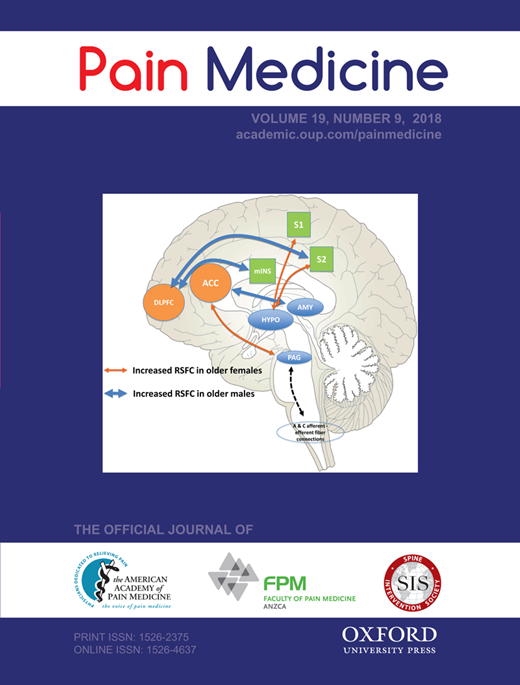
Acupuncture therapy offered in the group setting was effective in reducing pain severity, pain interference, and depression in patients with chronic neck, back, or shoulder pain or osteoarthritis.
Benjamin Kligler, Arya Nielsen, Corinne Kohrherr,, Tracy Schmid, Eve Waltermaurer, Elidania Perez, Woodson Merrell
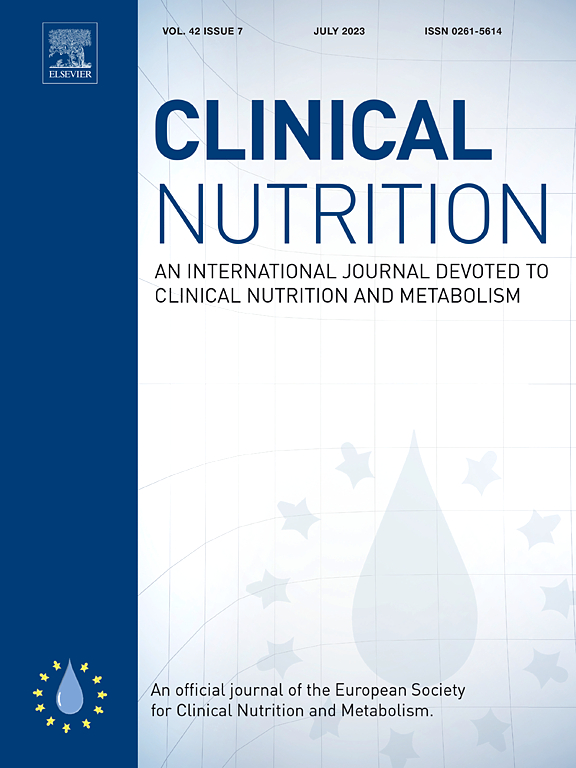
Randomised Controlled Trial
Green tea extract can potentially control pain and improve knee joint physical function in adults suffering from osteoarthritis.
Hashempur MH, Sadrneshin S, Mosavat SH, Ashraf A

Review Article
Traditional Chinese Medicine offers potential benefits like pain relief and functional improvement for knee osteoarthritis with few adverse events.
Yang M, Jiang L, Wang Q, Chen H, Xu G
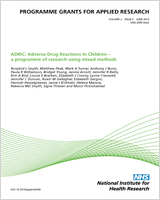
Systematic Review
The programme of research found that acupuncture was more effective than usual care and sham acupuncture for chronic pain, that it was one of the more clinically effective physical therapies for osteoarthritis and that it showed benefits in the treatment of depression.
MacPherson H, Vickers A, Bland M, et al.

Clinical Study
Pomegranate juice improves physical function and stiffness, decreases cartilage breakdown enzymes and enhances antioxidant status in patients with knee osteoarthritis.
Ghoochani N, Karandish M, Mowla K, Haghighizadeh MH, Jalali MT
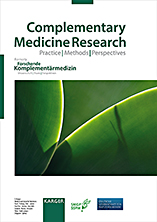
Systematic Review
Acupuncture therapy is more effective than NSAID in improving clinical efficacy rates and pain scores for treatment of chrondomalacia patellae.
Lv Z.-T.a · Li Z.-Q.b · Zhou X.c · Ma W.-W.d · Zhang J.-M.a · Chen A.-M

Experimental Study
Epigallocatechin 3-gallate (EGCG), found in green tea, can significantly slow down osteoarthritis progression and reduce associated pain in a post-traumatic osteoarthritis mouse model.
Leong DJ, Choudhury M, Hanstein R, Hirsh DM, Kim SJ, Majeska RJ, Schaffler MB, Hardin JA, Spray DC, Goldring MB, Cobelli NJ, Sun HB
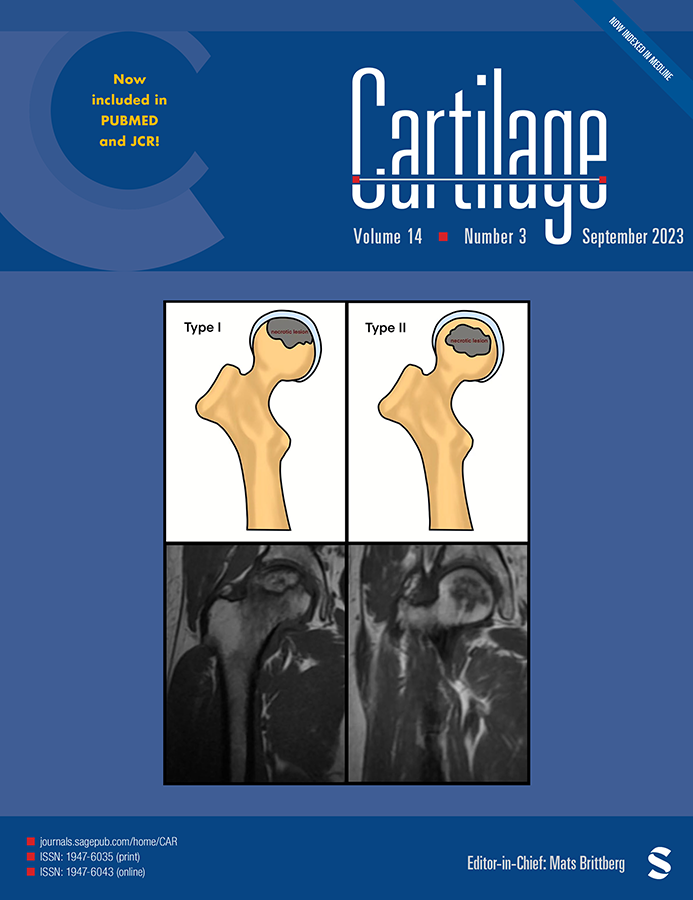
Review Article
A dietary supplement Avocado/Soybean Unsaponifiables aids in treating Osteoarthritis by preventing cartilage degradation and promoting cartilage repair, thereby reducing pain and enhancing joint functionality.
Christiansen BA, Bhatti S, Goudarzi R, Emami S

Systematic Review
The use of acupuncture for osteoarthritis is associated with significant reductions in pain intensity, improvement in functional mobility and quality of life.
Manyanga, T., Froese, M., Zarychanski, R. et al.
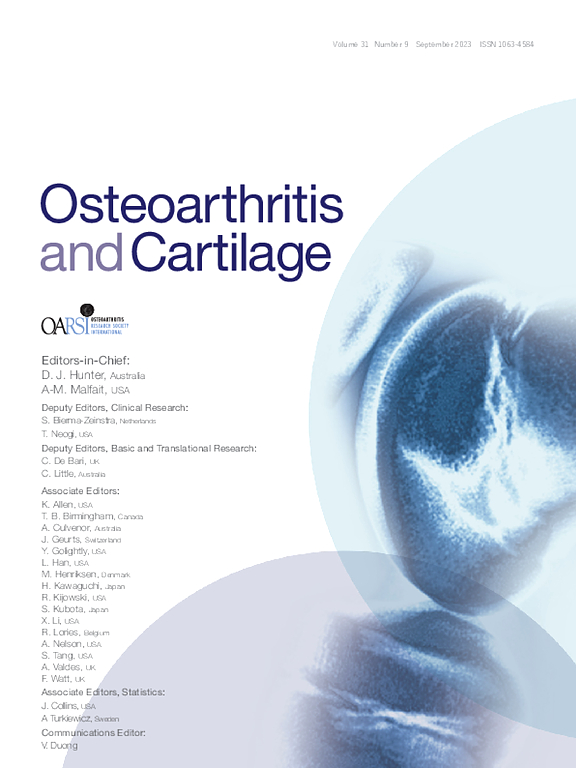
Randomised Controlled Trial
Tart cherry juice potentially helps alleviate symptoms of mild to moderate knee osteoarthritis and decreases the levels of high sensitivity C-reactive protein.
Schumacher HR, Pullman-Mooar S, Gupta SR, Dinnella JE, Kim R, McHugh MP

Randomised Controlled Trial
Tart cherry juice shows promise in easing knee osteoarthritis symptoms.
Schumacher HR, Pullman-Mooar S, Gupta SR, Dinnella JE, Kim R, McHugh MP

Systematic Review
Chinese herbal medicine may help in functional recovery in gout patients, while safely controlling serum uric acid level and inflammation severity.
Li XX, Han M, Wang YY, Liu JP

Randomised Controlled Trial
The daily use of avocado-soybean unsaponifiable-expanscience (ASU-E) reduces the progression of joint space narrowing in patients with hip osteoarthritis.
Maheu E, Cadet C, Marty M, Moyse D, Kerloch I, Coste P, Dougados M, Mazières B, Spector TD, Halhol H, Grouin JM, Lequesne M
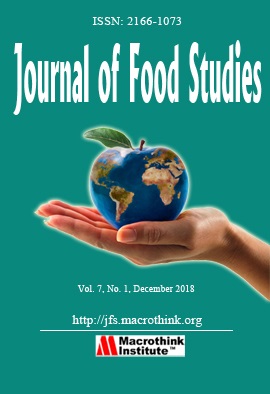
Randomised Controlled Trial
Tart cherry juice may lessen inflammation, thus reducing pain in women with osteoarthritis, according to changes noted in specific inflammatory serum biomarkers.
Kuehl KS, Elliot DL, Sleigh AE, Smith JL

Systematic Review
Ginger can reduce the direct activation of type 3 and 4 afferent nerve fibers by substances such as bradykinin and sensitization of afferent fibers by prostaglandins and cytokines.
Rohini Terry, PhD, Paul Posadzki, PhD, Leala K. Watson, BSc (Hons), Edzard Ernst, MD, PhD

Experimental Study
Pomegranate extract can inhibit key cellular pathways and activities involved in the progression of osteoarthritis.
Rasheed Z, Akhtar N, Haqqi TM
Executive Summary
Write an executive summary in the form of a blog article on the topic of "Research into Chinese medicine treatment for Arthritis" summarising the research below and using language that can be easily understood by patients and avoiding medical jargon using a professional and caring tone of voice.
Write an executive summary in the form of a blog article on the topic of "Researched Chinese medicine treatments for Arthritis" summarising the research below in an objective and easy to understand way, and using language that can be easily understood by patients. Group the article into Chinese medicine treatments first, followed by nutrition and other treatments. Avoid using medical jargon and use a professional and caring tone of voice.
Write me a concise but easy to understand executive summary on the topic of "Chinese medicine treatments for Arthritis" based on the following research that I will give you. Your summary should be 2 paragraphs long in Australian English spelling and include references to the studies.
A Review Article published in 2024 in the journal Rheumatology International found that Despite diet being key in shaping gut microbiota, it surprisingly does not impact the treatment outcomes in individuals with Rheumatoid Arthritis. The process used to understand this paradox involved an umbrella review. This is an examination of multiple research studies and papers that address a similar question, in this case, the effects of diet on Rheumatoid Arthritis (RA). Through a comprehensive analysis of various scientific studies, researchers sought to determine if there was a meaningful link between diet and outcomes in RA patients. The results of this study revealed an unexpected conclusion. Despite the gut microbiota's critical role in shaping the risk of RA, the data showed that diet, which is a dominant factor in shaping our gut microbiota, did not appear to affect the treatment outcomes in individuals with RA. This finding is surprising given the generally accepted understanding of the influence of diet on gut health and correlates with disease states. This conclusion introduces a new perspective in the understanding of RA and its relationship with diet.
A Systematic Review published in 2023 in the journal Autoimmunity Reviews found that Intermittent fasting may potentially influence autoimmune diseases like type 1 diabetes and rheumatoid arthritis, by reducing inflammation and supporting cellular repair mechanisms. Extensive research was done through several electronic databases such as PubMed, Scopus, Embase, and Web of Science. Rigorous inclusion criteria were applied to filter the most relevant studies on the effects of intermittent fasting on autoimmune diseases. No reference to further research trials was mentioned in the methodology. The results indicate a potential link between intermittent fasting and the management of certain autoimmune diseases. Autoimmune diseases like type 1 diabetes, rheumatoid arthritis, and systemic lupus erythematosus exhibited improvements owing to the reduction in inflammatory markers, improvement in gut microbiota, and enhanced cellular repair resulting from autophagy induced by intermittent fasting. However, results concerning other autoimmune diseases like multiple sclerosis, systemic lupus erythematosus, thyroid diseases, and psoriasis were inconclusive.
A Review Article published in 2023 in the journal Autoimmunity Reviews found that Nutrition, particularly an anti-inflammatory Mediterranean diet supplemented with oily fish and omega-3 supplements, can potentially reduce inflammation and improve symptoms of rheumatoid arthritis. The review examines evidence indicating a possible connection between nutrition and the risk and management of rheumatoid arthritis, an autoimmune disease having an immune-inflammatory response. The impact of different food types was considered, including pro-inflammatory and anti-inflammatory foods. Specifically, the research highlights the effectiveness of a Mediterranean diet, rich in fish and supplemented with omega-3 polyunsaturated fatty acids, in reducing inflammation and oxidation. Other factors such as herbs and spices, beverages, vitamin D, and probiotics were also taken into account. The research emphasizes the direct and indirect role of nutrition through the management of co-morbidity. The disease activity was observed to improve with dietary changes, particularly a propensity to reduce inflammation, oxidation, and beneficial effects on gut microbiota. An anti-inflammatory Mediterranean diet, supplemented with consumption of oily fish at least twice a week, and daily intake of omega-3 polyunsaturated fatty acid supplements of 2 g, has been recommended. The study also highlights the importance of rheumatologists working closely with registered dietitians to support patients in managing a well-balanced diet according to their individual needs.
A Clinical Study published in 2023 in the journal Journal of Clinical Medicine found that Rheumatoid arthritis-specific inflammation can be linked directly to the intestinal microbiota, thus, nutritional interventions against gut dysbiosis could function as a causal therapeutic approach. The study initiated by reducing the intestinal microbiome in 20 Rheumatoid Arthritis patients through bowel cleansing and a week of fasting, limiting the intake to 250 kcal/day. It also employed immune monitoring and sequencing of the microbiome. A control group constituting patients with metabolic syndrome was incorporated to serve as a non-inflammatory baseline. To understand the fluctuation and impact on disease activity, disease activity scores were calculated and cytometric profiling was performed, tracing up to 46 different surface markers. Additionally, serum levels of certain cytokines and indicators of mucosal barrier disruption were monitored. The change in intestinal microbiota, i.e., the effect of fasting on arthritogenic bacteria and the shift in microbial composition, was analyzed using sequencing. The detection of more eukaryotic, predominantly fungal colonizers in RA patients was also observed to understand their potential involvement. Finally, the study investigated the observed increase in endogenous cortisol levels during fasting.
A Systematic Review published in 2022 in the journal Frontiers in Nutrition found that Antioxidant therapy significantly reduces disease-related symptoms for patients with knee osteoarthritis. Methodology: The approach for this systematic review and meta-analysis was based on thorough literature analysis with no time or language restrictions from prominent databases including PubMed, International Scientific Indexing, and Scopus. The search was focused on the connections between "osteoarthritis" and "antioxidants". This study considered pain as the primary outcome while also analyzing the symptoms, functions of knee osteoarthritis, and quality of life. All these variables were measured using the corresponding instrument from existing studies. Only randomized controlled trials with a placebo control or other medical therapeutic interventions were included. Publication bias was evaluated using Begg's funnel plot and Egger's regression test, and results were validated using the trim-and-fill test. Results: From the initial 7,698 papers, information was obtained from 31 selected documents. Results showed that antioxidant therapy significantly affected the symptoms of patients with knee osteoarthritis, as validated using the Visual Analog Scale. However, there was no notable difference observed in the combined score, difficulty score, pain score, and stiffness score as reported by the Western Ontario and McMaster Universities Osteoarthritis Index.
A Randomised Controlled Trial published in 2022 in the journal Frontiers in Nutrition found that Fasting followed by a plant-based diet and a standard diet both positively affected rheumatoid arthritis disease activity and cardiovascular risk factors, without discernible differences. In this research, 53 rheumatoid arthritis patients were divided into two equal groups. One group underwent a 7-day fast and thereafter followed an 11-week plant-based diet. The second group adhered to a 12-week standard diet based on the dietary recommendations of the German society for nutrition. The main metric of comparison between the two groups was the change from baseline to 12 weeks on the Health Assessment Questionnaire Disability Index. The research showed that the fasting group noted an early improvement by day 7 and remained stable over 12 weeks. Meanwhile, the standard diet group showed slower but positive enhancements at 6 and 12 weeks. Furthermore, both dietary methods contributed to an improvement in disease activity scores of all the patients by week 12. Also, an advancement in cardiovascular risk factors, notably weight loss, was more prominent in the fasting group than the standard diet group.
A Systematic Review published in 2022 in the journal Evidence-Based Complementary and Alternative Medicine found that Acupuncture and moxibustion therapies have greater therapeutic effectiveness for knee osteoarthritis than sham treatments and generic acupuncture/moxibustion treatments. The researchers queried PubMed, Embase, and CNKI databases to find qualifying trials conducted between 2017 and 2022. All trials that employed acupuncture or moxibustion for knee osteoarthritis patients were included. The process of choosing studies to be included and extracting relevant data from them was carried out by two researchers independently. The data were analyzed using R 4.1.1. The meta-analysis included seventeen trials. The results of the analysis identified a correlation between several common forms of acupuncture and moxibustion therapies, as observed via a network meta-analysis. The findings showed that treatments involving acupuncture or moxibustion were more effective than sham treatments. Furthermore, when compared with standard acupuncture or moxibustion procedures, specific acupuncture or moxibustion procedures proved to be more effective.
A Randomised Controlled Trial published in 2022 in the journal Annals of the Rheumatic Diseases found that Fasting followed by a plant-based diet positively impacts disease activity and cardiovascular risk factors in rheumatoid arthritis patients. In the pilot study, patients with rheumatoid arthritis (RA) were split into two groups: one underwent a 7-day fast (consuming no more than 250 calories per day), followed by 11 weeks of a plant-based diet; the other was provided with conventional nutritional counseling according to the recommendations of the German Society for Nutrition for a total of 12 weeks. Disease activity and treatment responses were evaluated at the beginning of the experiment, day 7, week 6, and week 12. The results showed improvements in disease activity in both the fasting and conventional nutritional counseling groups. Noteworthy was the fact that the fasting group started showing improvements by day 7 as opposed to week 6 in the conventional group. Additionally, cardiovascular risk factors, such as weight and total cholesterol levels, showed more marked improvement in the fasting group compared to the conventional group. These improvements were found to be independent of any antibody status, intervention delivery method, or previous eating habits.
A Systematic Review published in 2022 in the journal BioMed Research International found that Acupuncture can reduce pain and improve functional activities in patients with knee osteoarthritis, proving particularly beneficial for chronic sufferers and enhancing their quality of life. This study amassed randomized controlled trials from various databases including PubMed, Embase, and others to assess the effectiveness of acupuncture in alleviating the symptoms of knee osteoarthritis. The researchers conducted a meta-analysis using the Cochrane systematic review method by integrating Review Manager 5.4 and TSA 0.9.5.10 beta software, in conjunction with the GRADE approach for quality assessment of the evidence. They also implemented a trial sequential analysis to manage random errors and calculate the required information size. The meta-analysis included eleven randomized controlled trials involving 2484 patients. The results indicate a positive effect of acupuncture on reducing pain and enhancing patient functionality. Conversely, stiffness symptoms were not significantly alleviated by acupuncture. Moreover, the analysis demonstrated no substantial difference between the effectiveness of acupuncture and sham procedures in improving the psychological aspects of patients' quality of life. Furthermore, physical health improvement, as measured by SF-36 or SF-12, was not significantly different between groups receiving real or sham acupuncture. The trial sequential analysis graphs showed cumulative Z-curves crossing the traditional statistical level favoring acupuncture, highlighting its potential usefulness. Therefore, acupuncture shows promise as an alternative therapy for patients with knee osteoarthritis.
A Review Article published in 2022 in the journal Journal of Medicinal Food found that Omega-3 fatty acids can help prevent and manage chronic inflammatory diseases, including ulcerative colitis and rheumatoid arthritis, through influencing gut microbiota. The study primarily encompasses a review of both experimental and clinical studies on the influence of omega-3 fatty acids on chronic inflammatory conditions, with the attention being specifically focused on those diseases with an autoimmune background. The study highlights the role of these fatty acids in maintaining bodily homeostasis, as well as the enzymatic processes they trigger within the body upon ingestion. Natural sources of omega-3 are also explored, emphasizing the importance of maintaining a healthy and balanced diet. In their exploration of omega-3's impact on inflammatory conditions, the researchers revisit the pathogenesis of ulcerative colitis and rheumatoid arthritis under the theoretical approach of gut microbiota dysbiosis. This approach emphasizes the role of the gut in maintaining health and identifies how imbalances can contribute to the development and persistence of these conditions. The researchers propose that omega-3 fatty acids are able to prevent and control these conditions, which are significant contributors to global chronic health burden and can lead to severe complications and disabilities if not treated. The potential of omega-3's to prevent severe illness in cases of COVID-19 infection through immune system modulation and control of the inflammatory process is also briefly explored.
A Review Article published in 2022 in the journal The American Journal of Chinese Medicine found that Acupuncture shows promising results in managing autoimmune diseases by potentially regulating immune responses. The methodology of the study involved a comprehensive review of how acupuncture, a form of traditional Chinese medicine, may be employed as a treatment method for autoimmune diseases such as multiple sclerosis, rheumatoid arthritis, and inflammatory bowel disease. The research was based on existing knowledge and accumulating data, investigating the role of acupuncture in regulating immune responses during these conditions. The discussion of the results revealed that acupuncture showed promise in managing these diseases. It was noted that the positive outcomes observed might be linked to the potential of acupuncture to regulate abnormal immune responses which are characteristic of autoimmune diseases. Despite the fact that the precise mechanism through which this achieved is not fully understood, the findings indicate a promising alternative method of managing autoimmune conditions.
A Cohort Study published in 2022 in the journal Nutrients found that Moderate consumption of fish, particularly oily fish, may decrease rheumatoid arthritis risk, potentially countering the increased risk induced by smoking. The research was carried out within the E3N Study, a French prospective cohort study involving 98,995 women from 1990. Within this group, the diet of the subjects was assessed via validated food frequency questionnaires gathered in 1993. Utilising the colossal amount of data collected, a statistical method known as Cox proportional hazards models were implemented to identify potential relationships between incident rheumatoid arthritis, various types and amounts of fish consumption, and other potential risk factors such as smoking and age. Looking at the discussion of results, the study unearthed some fascinating links. Starting off, no linear association between general fish consumption and rheumatoid arthritis risk existed. Nevertheless, moderate consumption of fish was found to have a protective effect, reducing likelihood of developing rheumatoid arthritis. Digging deeper, this protection was especially pronounced in current or former smokers. Interestingly, this favorable association seemed to be stronger when it came to consumption of oily fish, thanks to its high omega-3 fatty acid content. Conversely, lean fish consumption did not display the same level of correlation. The proposed theory is the protective influence is likely due to the omega-3 fatty acid content prevalent in oily fish.
A Systematic Review published in 2022 in the journal Frontiers in Nutrition found that Higher consumption of coffee and specifically decaffeinated coffee raises the risk of rheumatoid arthritis, while caffeinated coffee, tea and caffeine intake doesn't. In the methodology, a dose-response meta-analysis of prospective cohort studies was carried out to evaluate the association between dietary caffeine, and different types of coffee and tea consumption with rheumatoid arthritis (RA). Relevant research papers were identified through a database search in PubMed/Medline, Scopus and EMBASE until July 2021. The studies considered different types of coffee, caffeinated or decaffeinated, tea or caffeine exposure with RA as the main or one of the outcomes. Out of 742 publications, five studies were selected for inclusion in the meta-analysis. Pooled relative risks were calculated through a fixed-effects model. Both linear and non-linear dose-response analyses were conducted to inspect dose-response relations. The analysis of results revealed a significant association between the consumption of coffee, especially decaffeinated coffee and increased risk of RA, when comparing between extreme categories of consumption. For each additional cup of coffee consumed daily, there was a notable increase in the risk of RA. However, this study found no significant link between the intake of caffeinated coffee, tea or caffeine intake and the risk of RA.
A Systematic Review published in 2022 in the journal Frontiers in Physiology found that Moxibustion, a form of traditional Chinese medicine, appears to be an effective and safe treatment for knee osteoarthritis. The researchers used a series of databases including Embase, PubMed, Web of Science, Cochrane Library, and others to carry out a comprehensive evaluation of previous systematic reviews on the treatment of knee osteoarthritis with moxibustion. They employed the Measurement Tool to Assess Systematic Reviews 2 to assess the methodological quality, Preferred Reporting Item for Systematic Reviews and Meta-analyses for reporting quality, and ROBIS Tool to evaluate the risk of bias in the systematic reviews. They also assessed the strength of evidence with the Grading of Recommendations Assessment, Development and Evaluation tool and carried out a meta-analysis of the total effectiveness rate. From this process, 10 systematic reviews were selected that had met their criteria. These reviews included the results of 57 randomized controlled trials involving a total of 5,149 participants. However, these reviews were found to have several critical deficiencies, scoring low on the quality scale used. Despite this, moxibustion, and its combination treatment, were shown to improve the total effectiveness rate in knee osteoarthritis. Eight of the reviews had reported adverse events but none were classified as serious in either the moxibustion group or control group.
A Experimental Study published in 2022 in the journal Frontiers in Pharmacology found that PIASCLEDINE-ExpASU®, a type of avocado/soybean unsaponifiable product, displays superior pharmacological activity due to its unique composition, including a high inhibitory effect on pro-inflammatory factors. The study began with the characterisation of the lipid content of seven different avocado/soybean unsaponifiable (ASU) products through gas chromatography analysis performed on a VARIAN 3400 chromatograph. In parallel, the effects of these products were tested on human osteoarthritis chondrocytes (cartilage cells) cultured in alginate beads. The researchers focused on the effects of these ASU products on aggrecan, key interleukins, and matrix metalloproteases. In terms of results, PIASCLEDINE-ExpASU® stood out due to a specific profile involving unique chromatographic peaks and the presence of specific compounds like alkyl furan fraction, alkyl triols, and squalene. Remarkably, this product showed heightened efficacy in inhibiting production of nitric oxide, interleukins, and catabolic factors. Meanwhile, excepting two products, the remaining ASUs showed varied capacity in increasing aggrecan production, a positive factor in the context of osteoarthritis treatment.
A Cohort Study published in 2022 in the journal Clinical Rheumatology found that Increased plasma omega-3 levels, which are associated with genetically higher intake of omega-3, contribute to a higher risk of rheumatoid arthritis among people of European ancestry. Methodology: The researchers have used an extensive set of data from the largest Genome-Wide Association Study (GWAS) which focuses on the correlation between omega-3 fatty acids and rheumatoid arthritis. They used information from a total of 114,999 individuals with European ancestry for the omega-3 study and 14,361 cases along with 43,923 controls of European ancestry for the rheumatoid arthritis study. By employing various methodological tests such as Mendelian randomization-egger_intercept, MR-PRESSO, and Cochran's Q test, they assessed the role of pleiotropy and heterogeneity in the relationship between omega-3 and rheumatoid arthritis. Discussion of Results: Results reveal no significant bias, pleiotropy, or heterogeneity among the omega-3 genetic instrumental variables in rheumatoid arthritis datasets. However, as the Mendelian randomization analysis indicated a causal link, the study provides the inference that with the genetic increase of omega-3 levels, the risk of rheumatoid arthritis also increases, particularly among individuals of European descent. Therefore, it suggests that the reduction in the intake of omega-3 could potentially reduce the risk of rheumatoid arthritis in this population.
A Systematic Review published in 2021 in the journal Health Promotion Perspectives found that Pomegranate has been confirmed to improve clinical features and reduce inflammatory, oxidative stress, and apoptosis markers in osteoarthritis. In the methodology, a systematic review was conducted using established databases like Scopus, PubMed, Embase, WOS, ProQuest, and Google Scholar up until February 2021. Both MESH and non-MESH keyword searches were performed in the title, abstract, and keywords. The review considered full-text clinical, animal, and in vitro studies in all languages and specifically excluded review articles, book chapters, conference abstracts, and research related to pomegranate in health problems other than osteoarthritis. A manual search was performed to examine the references or citations of eligible papers as well as grey literature to discover potential researches. The results of the systematic review included twenty-three articles which all showed the beneficial impact of pomegranate across human, animal, and in vitro studies. These showed improvements in clinical presentations and reductions in inflammatory, oxidative stress, and apoptosis markers in osteoarthritis. This demonstrated the therapeutic potential of pomegranate for easing the effects of osteoarthritis.
A Review Article published in 2021 in the journal Frontiers in Medicine found that The ketogenic diet, by reducing carbohydrate intake, shows potential in weight loss, insulin requirement reduction, and mitigation of inflammatory symptoms in patients with inflammatory arthritis. The ketogenic diet operates on the principle of substantially limiting carbohydrate consumption with a daily calorie percentage between 5-10%, facilitating a metabolic switch towards the use of ketone bodies. Studies indicate promise in a variety of applications including weight loss, insulin requirement minimization in diabetes, cancer protocol supplementation, neurological treatment, and control optimization for metabolic and cardiovascular diseases. Although literature on the anti-inflammatory properties of the ketogenic diet on rheumatic diseases is somewhat limited, their beneficial effects on weight loss are evidenced by related biomechanical and biochemical factors. Obesity is recognized to stimulate macrophage activation and generate pro-inflammatory cytokines including TNF-α, IL-1b, and IL-6. Furthermore, scientists believe that the ketogenic diet’s primary clinical effect could be linked to the enhancement of insulin sensitivity. Insulin resistance demonstrates a correlation with increased TNF-α, IL-1α, IL-1β, IL-6, and leptin. Additionally, reduction in body adipose tissue and weight loss contribute to the anti-inflammatory effects and their impact on cardiovascular health. Within the context of rheumatoid arthritis, fasting has been shown to reduce disease symptoms, potentially through the production of a key ketone body, β-hydroxybutyrate, which may also stifle IL-17. This, combined with intermittent fasting, was shown to provide symptomatic improvements in psoriatic arthritis. However, the current literature does not allow for definitive conclusions regarding the effects of a ketogenic diet on ankylosing spondylitis.
A Cohort Study published in 2021 in the journal Journal of Multidisciplinary Healthcare found that Adding Chinese herbal medicines to routine treatment was found to be related to lower fracture risk in rheumatoid arthritis patients. This is the largest population-based cohort study based on Taiwan's national health database designed to determine the association between the use of CHMs and the risk of incident fracture in RA patients. Longer duration of incorporating CHMs into routine treatment for RA patients was found to significantly reduce the risk of fracture by 53%. Results of this study may serve as a reference to help healthcare providers when planning and implementing therapeutic interventions that seek to improve the overall health of patients with RA. Further prospective randomized trials are recommended to clarify whether the association revealed in this study supports a causal link.
A Systematic Review published in 2021 in the journal Complementary Therapies in Medicine found that Turmeric curcuminoids are associated with better pain relief than NSAIDs in knee osteoarthritis. The meta-analysis results showed that curcuminoids were significantly more effective than comparators regarding visual analogue scale (VAS) and Western Ontario and McMaster Universities Arthritis Index (WOMAC) pain scores. However, no significant difference in pain relief or AEs between the high-dose (daily dose ≥1000 mg or total dose ≥42 gm) and low-dose (daily dose <1000 mg or total dose <42 gm) curcuminoid treatments was observed. When comparing curcumininoids versus NSAIDs, a significant difference in VAS pain was found. For AE analysis, three of our included studies used NSAIDs as comparators, with all reporting higher AE rates in the NSAID group, though significance was reached in only one study.
A Meta-Analysis published in 2021 in the journal Nutrients found that Anti-inflammatory diets can lead to significantly lower levels of pain than regular diets for those with rheumatoid arthritis. During the study, the researchers investigated the impact of potentially anti-inflammatory diets (including Mediterranean, vegetarian, vegan, and ketogenic) on pain caused by rheumatoid arthritis. They used variables such as pain on a visual analogue scale, levels of C-reactive protein, erythrocyte sedimentation rate, health assessment questionnaire, disease activity score, tender/swollen joint counts, and measurements of weight, and body mass index. For their sources, the team scoured databases like MEDLINE, Embase, and CINAHL and ended up with 564 unique publications, out of which 12 were used in the systematic review and 7 in the meta-analysis. The results were obtained using a meta-analysis of eligible randomized controlled trials in RevMan 5. To compute the results, the mean differences or standardized mean differences were employed, and the inverse variance method of pooling was used with a random-effects model. In terms of bias risk assessment, all the studies used were identified as having a high risk of bias. Despite this, the results showed a consistent pattern that the anti-inflammatory diets resulted in significantly lower pain than regular diets for individuals suffering from rheumatoid arthritis.
A Cohort Study published in 2021 in the journal Clinical Rheumatology found that Intermittent fasting during Ramadan can lead to rapid improvement of rheumatoid arthritis activity, with positive effects lasting up to three months. In this prospective study, 35 patients with rheumatoid arthritis participated in fasting during Ramadan 2019. Their disease activity was assessed at three different time points: six months prior to the beginning of Ramadan, during the month between the seventh day of fasting and seventh day post Ramadan, and approximately 3.4 months after fasting. The disease activity score 28 was used to evaluate the activity of the disease. A significant decrease in all disease activity parameters was observed from the time six months prior to Ramadan to the time during fasting, followed by a gradual increase of clinical and biological outcomes between the end of fasting and the months following. However, the decrease of specific disease indicators that resulted from the Ramadan fast was maintained until the time point 3.4 months after fasting, despite the increasing trend. Thus, the overall improvements from fasting were found to be sustained for at least 3 months after the end of the Ramadan fasting period.
A Review Article published in 2021 in the journal Frontiers in Pharmacology found that Yu Xing Cao, a traditional Asian medicine, demonstrates organ protection, immune regulation, and anti-tumour activity when analysed in modern research. The methodology used in this review began by harnessing key search terms such as 'H. cordata and lung', 'H. cordata and heart', 'H. cordata and liver', and 'H. cordata and inflammation' to query research databases including PubMed, Web of Science and ScienceDirect. The focus was on articles published within the past decade that aligned significantly with the chosen keywords. Contents, disease models and research methods from these articles were analysed to form a comprehensive understanding of H. cordata's therapeutic effects. Results from the review found that H. cordata contained a variety of chemical constituents common to medicinal plants, including flavonoids and volatile oils, identified as the main active components. The plant demonstrated a range of pharmacological activities including organ protection, where it reduced the release of inflammatory factors to alleviate lung injury. The immunity regulation aspect enhanced immune barriers in the vagina, oral cavity, and intestinal tract, reducing pathogen infection due to its combined antibacterial and antiviral activity. It was also observed to have anti-inflammatory and anti-tumour properties, with a noted effect on lung, liver, colon, and breast tumours.
A Systematic Review published in 2021 in the journal Acupuncture & Electro-Therapeutics Research found that Treatment of rheumatoid arthritis using acupuncture with Western medicine was associated with higher efficacy and lower risks than treatment with Western medicine alone. In total, 9 RCTs involving 698 patients were included for analysis. VAS, ESR, CRP, and RF were all shown to favor the combination of acupuncture with Western medicine compared to Western medicine alone. ST36 (Zusanli), EX-UE9 (Baxie), Ll11 (Quchi), GB34 (Yanglingquan), TE14 (Jianliao) and TE4 (Yangchi) were frequently used in 9 clinical trials.
A Clinical Study published in 2021 in the journal Journal of Herbal Medicine found that Green tea therapy can significantly improve rheumatoid arthritis symptoms, correlating with changes in specific circulating serum molecules, miR-125b and miR-146a. In this study, 100 female patients suffering from rheumatoid arthritis and 50 healthy female subjects were examined. Patients with rheumatoid arthritis underwent green tea therapy, where they consumed 5 cups of green tea daily, delivering a total of 1230 mg of catechins, over a span of 24 weeks. During this time, researchers used real-time PCR analysis to measure the levels of miR-146a and miR-125 b in the patients' peripheral blood mononuclear cells. These cells were isolated from the subjects at three distinct stages: the starting point (baseline), after 12 weeks, and finally after 24 weeks of the treatment. The observations revealed a notable increase in the level of circulating miR-125 b and decrease in miR-146 expression, and these shifts were seen to correspond positively with measures of disease activity and pain intensity in the patients after 24 weeks of the green tea therapy. Also of note was that the levels of miR-146a and miR-125b could accurately predict the clinical response to green tea therapy in 65% of the rheumatoid arthritis patients. Discrepancies in miR-146a and miR-125b levels following green tea therapy suggests that they may be attributed to the joint protective, antioxidant, and anti-inflammatory effects of green tea. It was therefore proposed that both miR-146a and miR-125b could potentially serve as diagnostic, therapeutic, and predictive biomarkers in green tea therapy and may even have valuable application in related non-drug rheumatoid arthritis therapy.
A Randomised Controlled Trial published in 2021 in the journal Advances in Integrative Medicine found that Pomegranate peel extract supplementation can decrease total cholesterol and triglyceride levels while boosting antioxidant status in obese women with knee osteoarthritis. The research was a randomized, double-blind placebo-controlled trial involving 66 obese women aged 38 to 60 years old with knee osteoarthritis. These participants were split into two groups, the intervention group and control group, each containing 33 members. The intervention group received pomegranate peel extract capsules (500 mg) twice daily for 8 weeks including standard drug therapy while the control group was given a placebo during the same period. All participants' fasting blood samples, anthropometric measurements, dietary intake data, and physical activity levels were collected both before the start and at the end of the trial. Results analysis showed that pomegranate peel extract supplementation brought down levels of serum total cholesterol, triglyceride and an oxidative stress marker while enhancing levels of some antioxidant enzymes and the overall antioxidant capacity when compared to the control group. However, there were no noticeable alterations between the two groups in terms of low-density lipoprotein cholesterol, high-density lipoprotein cholesterol, and body mass index by the end of the experiment.
A Randomised Controlled Trial published in 2021 in the journal Journal of Complementary and Integrative Medicine found that Avocado/soy unsaponifiables effectively treat osteoarthritis by controlling the balance between oxidant and antioxidant molecular markers. The methodology used in this study was a double-blind, randomized, placebo-controlled, cross-over trial. Forty osteoarthritis patients were classified into two groups: one received avocado/soy unsaponifiables (ASU) for three months followed by three months of placebo, and the other group received a placebo first for three months followed by three months of ASU. The patients' oxidant status was evaluated by measuring their serum malonldialdehyde (MDA). Other measures such as total antioxidant capacity, reduced glutathione, and antioxidant enzymes like superoxide dismutase and catalase were also assessed. After three months of treatment, all patients who were given avocado/soy unsaponifiables exhibited a significant decrease in their serum MDA levels, indicating lower oxidative stress. In comparison, these levels were higher at baseline and after placebo treatment. Furthermore, the treatment with avocado/soy unsaponifiables resulted in positive changes in the patients' antioxidant levels. Analysis also showed that the effect of avocado/soy unsaponifiables was consistent, regardless of the sequence in which the medication was received. These findings demonstrate that avocado/soy unsaponifiables can contribute effectively to the treatment of osteoarthritis by regulating the balance between oxidant and antioxidant molecular markers.
A published in 2021 in the journal Frontiers in Medicine found that Adding acupuncture to conventional therapy may decrease the subsequent endometriosis risk in female rheumatoid arthritis patients. Between 1998 and 2010, female subjects with RA were recruited from a nationwide database (5,736 patients; age ≥20 years). Enrolled patients included 2,407 acupuncture users and 2,407 nonusers randomly selected using propensity scores. The occurrence of endometriosis was recorded through the end of 2012. Cox proportional hazards regression was used to estimate the adjusted hazard ratio (HR) associated with acupuncture use. Results: During the follow-up period, 35 acupuncture users and 94 non-users developed endometriosis, with incidence rates of 2.36 and 4.91 per 1,000 person-years, respectively. Acupuncture use was associated with a 55% lower endometriosis risk. Those who received high intensity acupuncture (≥15 packages) had the greatest benefit. The results of multivariable analysis demonstrated that the use of acupuncture was related to a significantly reduced risk of endometriosis. In the subgroup analysis, the medium- to high-level intensity acupuncture use was found to possibly lessen the risk of having endometriosis for more than 70%. We discovered that the post-rheumatoid arthritis acupuncture use would significantly reduce the risk of endometriosis in a dose-dependent manner.
A Systematic Review published in 2021 in the journal International Journal of Clinical Practice found that Pomegranate consumption can effectively manage rheumatoid arthritis complications by reducing inflammation and oxidative stress without adverse effects. The methodology involved in this review systematically examined available evidence related to pomegranate's impact on rheumatoid arthritis (RA). This study involved an extensive search of electronic databases such as PubMed, WOS, Cochrane Library, Scopus, Embase, and Google Scholar until March 2020, alongside search alert services for recent publications. Included were relevant clinical, animal, and in vitro studies, while review papers, conference abstracts, book chapters, or articles considering the effects of pomegranate in combination with other plants or its effects on other illnesses were excluded. The results pointed towards the beneficial effects of pomegranate. It was observed across human, animal, and in vitro studies that pomegranate significantly impacted clinical symptoms, inflammatory and oxidative factors in RA patients. Further, it was found that pomegranate helped manage RA complications by mitigating the inflammation and oxidative stress involved, and no severe unfavorable results were reported concerning pomegranate consumption.
A Randomised Controlled Trial published in 2021 in the journal Arthritis & Rheumatology found that Intensive electroacupuncture appears to reduce pain and improve function in knee osteoarthritis patients more effectively than sham acupuncture. In this multicenter research, individuals suffering from knee osteoarthritis were randomly selected to receive one of three treatments thrice weekly, over an eight-week period: electroacupuncture, manual acupuncture, or sham acupuncture. A double-blind model was enforced where participants, outcome assessors, and statisticians remained unaware of the specific treatment group allocations. The primary benchmark of success was the response rate, which gauged the ratio of participants who noted a minimum clinically important improvement in both pain and function by the eighth week. In the study involving 480 participants, 442 were evaluated for the effectiveness of treatment. The response rates varied among the groups at week 8: with electroacupuncture and manual acupuncture groups reporting higher rates of improvement compared to the sham acupuncture group. On continued assessment at weeks 16 and 26, these higher response rates were sustained in both the electroacupuncture and manual acupuncture groups. Among the patients, those who received intensive electroacupuncture reported less pain and better function at week 8 compared to those who received sham acupuncture, and these effects persisted through week 26. Whereas, intensive manual acupuncture did not show any significant benefits at week 8 but showed improvement in the follow-up period.
A Systematic Review published in 2020 in the journal Pain Research and Management found that The use of various treatments of traditional Chinese medicine can significantly improve the level of the total effective rate and reduce the occurrence of recurrence rate in the later stage of osteoarthritis treatment. These effects are mediated by a combination of several mechanisms. This method of treatment with TCM can reduce pain, improve their ability to move, and improve their living standards by reducing the level of VAS, WOMAC, SSTCM, SS, and Lequesne and increasing the level of Lysholm. TCM therapy can reduce inflammation and exert anti-inflammatory effects by reducing the levels of IL-1, IL-6, TNF-α, MMP-3, ESR, and CRP and increasing TGF-β. TCM therapy can increase BGP, FGF-2, IGF-1, and OPG and reduce BMP-7 and RANKL levels to improve bone metabolism in order to achieve the balance of bone metabolism. The TCM therapy can also reduce the levels of VEGF and Ang I, reduce cartilage injury, and restore vascular endothelial function. The effect of TCM therapy can also increase the level of SOD and reduce the existence of reactive oxygen species. The net analysis of ACU and index showed that ACU at local acupoints such as Yinlingxue, Xuehai, and Yanglingquan can reduce inflammatory indexes, reduce cartilage damage, balance bone metabolism, reduce WOMAC, and improve TER. The network analysis chart of TCMs and index showed that TCMs can effectively reduce WOMAC through the inhibition of IL-1 and MMP-3 and improve the effect of TER and so on. However, our findings must be handled with care because of the small size and low quality of the clinical trial samples cited. Other rigorous and large-scale RCTs are needed to confirm these results.
A Review Article published in 2020 in the journal Antioxidants found that Green tea catechins potentially contribute to maintaining joint and skeletal muscle health, mitigating symptoms of osteoarthritis and sarcopenia. The research begins by providing an understanding of osteoarthritis, a degenerative inflammatory disorder of articular cartilage, and sarcopenia, a condition characterized by loss of muscle mass and strength. It explores their prevalence, causes such as excessive inflammation and oxidative stress, mitochondrial dysfunction, and diminished autophagy. It then delves into the role of green tea catechins in joint health, including their influence on inflammatory signaling agents, anabolic mediators, and miRNAs expression. This leads to a decrease in chondrocyte death and collagen degradation, thereby offering cartilage protection. The investigation also examines the effects of green tea catechins on skeletal muscle health. It highlights their role in maintaining an equilibrium between protein synthesis and degradation, and enhancing the synthesis of mitochondrial energy metabolism. The review thus suggests a positive impact of green tea catechins on joint and muscle health, helping to maintain favorable muscle homeostasis and reduce muscle atrophy associated with aging. It ends by pointing out the limitations of the current study and proposing future research directions.
A Review Article published in 2020 in the journal Nutrients found that Beverages, through their diverse nutritional contents, have notable effects on rheumatoid arthritis progression by interacting with immune signaling pathways and altering the microbiome. The researchers reviewed existing literature to assess the role of various beverages in the context of rheumatoid arthritis. The primary focus of their study was understanding how the molecular contents of beverages such as coffee, tea, and wine, are contributing to the development and progression of the disease by interfering with immune signaling pathways. Moreover, they examined how these beverages affect the microbiome, leading to downstream effects on inflammatory pathways. The outcomes of the analysis indicate that beverages indeed play a pivotal role in the autoimmunity of rheumatoid arthritis. They found evidence that certain components present in beverages could either benefit the disease progression or negatively contribute to it. The researchers also discovered that considering beverages in the wider context of dietary patterns can help to better understand their role in disease management.
A Systematic Review published in 2020 in the journal Current Rheumatology Reports found that The majority of studies concluded the superiority of short-term analgesic effects over various controls and suggested that acupuncture may be efficacious for chronic musculoskeletal pain. We examined 16 review articles and 11 randomized controlled trials published in the last 5 years on the clinical efficacy of acupuncture in adults with CMP conditions. The available evidence suggests that acupuncture does have short-term pain relief benefits for patients with symptomatic knee osteoarthritis and chronic low back pain and is a safe and reasonable referral option. Acupuncture may also have a beneficial role for fibromyalgia. However, the available evidence does not support the use of acupuncture for treating hip osteoarthritis and rheumatoid arthritis.
A Systematic Review published in 2020 in the journal Clinical Rehabilitation found that Tai Chi exercise was beneficial for ameliorating physical and mental health of patients with knee osteoarthritis and should be available as an alternative non-pharmacological therapy in rehabilitation programmes. A total of 16 RCTs involving 986 patients with knee osteoarthritis met the established inclusion criteria. The strength of evidence for the main outcomes was low or moderate. The systematic review illustrated the efficacy of Tai Chi exercise in treating and managing knee osteoarthritis. Patients’ outcomes practising Tai Chi exercise were improved significantly, including pain, stiffness, physical function, dynamic balance, physiological and psychological health. No adverse events associated with Tai Chi exercise were reported.
A Review Article published in 2020 in the journal Longhua Chinese Medicine found that Green tea and its compounds, especially catechins, may potentially prevent and treat osteoarthritis due to their potent antioxidant and anti-inflammatory properties. The researchers performed an extensive review exploring the potential impact of green tea and its bioactive compounds, chiefly catechins, on osteoarthritis management. Their focus was on the anti-inflammatory and antioxidant abilities of these compounds. Based on the review, such compounds can quell inflammation by blocking various signaling pathways interconnected with inflammatory processes. Specifically, they have the potential to suppress the expression of several cytokines and enzymes related to inflammation. In addition, green tea was noted for its property to neutralize free radicals, thus averting the formation of harmful reactive oxygen species and countering oxidative stress. While many conventional, non-surgical osteoarthritis therapies can lead to numerous adverse effects, the current review suggests that green tea could serve as a safer alternative. It may be a promising direction in the prevention and management of this chronic, painful, and inflammatory condition, which touches a significant number of people globally.
A Systematic Review published in 2020 in the journal Journal of Acupuncture and Tuina Science found that In the treatment of knee osteoarthritis, the acupuncture group had significant advantages over sham acupuncture or no-acupuncture groups in relieving pain and improving physical function. Eight databases were extensively searched up to March 2018. Randomized controlled trials (RCTs) comparing the efficacy of acupuncture with sham acupuncture or no acupuncture for knee osteoarthritis were included. The Cochrane Collaboration’s tool was used for assessing the risk of bias. A total of 18 RCTs were included, involving a total of 3 522 participants. The results showed that acupuncture was superior to sham acupuncture in relieving pain and improving physical function. In comparison to the no-acupuncture group, the acupuncture group also showed significant advantages in relieving pain and improving physical function. Sensitivity analyses suggested that the results were robust, and Egger’s test found no potential publication bias.
A Systematic Review published in 2020 in the journal Nutrition Reviews found that High doses of omega-3 fatty acids, Vitamin D supplementation, and dietary sodium restriction showed significant improvement in reducing rheumatoid arthritis symptoms. The study method involved conducting a systematic review, with all methods prespecified, in line with the Preferred Reporting Items for Systematic Reviews and Meta-Analyses guidelines. Relevant articles were found on Medline and Embase. Data were extracted from these articles by two independent reviewers, eventually identifying a total of 70 human studies that fit the scope of the research. The results indicated that the administration of omega-3 polyunsaturated fatty acids in high doses led to a decrease in rheumatoid arthritis disease activity, as well reduced failure rates of pharmacotherapy. Also, supplementing with Vitamin D and dietary sodium restriction had beneficial effects on some rheumatoid arthritis outcomes. Fasting resulted in significant but brief subjective improvements. Whilst the Mediterranean diet showed improvements in some rheumatoid arthritis disease activity measures, the results from vegetarian, elimination, peptide, or elemental diets implied that the responses are very individualized.
A Review Article published in 2020 in the journal Phytotherapy Research found that Ginger, through various methods, exhibits promising pain reduction effects for conditions such as dysmenorrhea, muscle soreness, osteoarthritis, low back pain, and migraines. The review incorporates a vast range of randomized controlled trials conducted over the past decade, where ginger was mainly used for pain relief in distinct conditions. The conditions included dysmenorrhea, delayed onset muscle soreness, osteoarthritis, chronic low back pain, and migraines. The variety of methods used included oral administration, topical application, and aromatic oil massages. In the analysed trials, for dysmenorrhea and muscle soreness, the considered studies suggested a promising effect after both oral and topical administration of ginger. As for osteoarthritis, most trials demonstrated pain reduction following topical and oral use of ginger, one focused on the beneficial effects of ginger in relieving migraine pain. Last but not least, a trial involving massages with aromatic ginger oil highlighted its potential in reducing chronic low back pain.
A Cohort Study published in 2020 in the journal The Journals of Gerontology: Series A found that Certain oxylipins, which are bioactive lipids derived from omega-6 and omega-3 polyunsaturated fatty acids, are potential key influencers in arthritis in older adults. The research method involved an observational prospective study of 64 patients over the age of 60 with newly diagnosed arthritis, which was categorized as Elderly-onset rheumatoid arthritis and polymyalgia rheumatica. Patients' blood samples were taken at the start of the study and 3 months post-treatment, with results compared to 18 control samples. A thorough clinical examination was conducted for each patient. Serum oxylipins (bioactive lipids derived from omega-6 and omega-3 polyunsaturated fatty acids) were determined through mass spectrometry, and data analysis was performed. In the discussion, it was found that the levels of certain oxylipin species were significantly different between control subjects and arthritis patients. Interestingly, the ratio of omega-3 to omega-6 polyunsaturated fatty acids was significantly downregulated in elderly-onset rheumatoid arthritis patients compared to controls. Two oxylipins, namely hydroxydocosahexaenoic acid and dihydroxy-eicosatrienoic acid, were identified as top candidates for differentiating polymyalgia rheumatica from elderly-onset rheumatoid arthritis. Following treatment, the levels of omega-3 derived anti-inflammatory species increased in elderly-onset rheumatoid arthritis patients.
A Cohort Study published in 2020 in the journal Clinical Rheumatology found that Ramadan fasting can induce rapid improvement in rheumatoid arthritis and spondyloarthritis activity without significantly affecting medication compliance or tolerance. In the methodology, this study was a prospective, monocentric one that included patients with either rheumatoid arthritis or spondyloarthritis who partook in Ramadan fasting in 2019. The disease activity and management of chronic medications were assessed and compared in two visits - one six months before Ramadan fasting began and a second one after at least seven days of fasting. In the results, the study found that both rheumatoid arthritis and spondyloarthritis activity, as measured by Disease Activity Scores, decreased after patients fasted during Ramadan. In contrast, compliance with chronic medications and tolerance did not significantly change. These findings suggest fasting can be a potentially effective approach to improving disease activity in patients with rheumatoid diseases. Moreover, these findings provide reassurance to patients who may have fears about medication intake during Ramadan, which could improve adherence to treatment.
A Randomised Controlled Trial published in 2020 in the journal Acupuncture in Medicine found that Electroacupuncture might provide stronger impact on knee osteoarthritis than manual acupuncture, though both methods are safe and feasible treatments. The study consisted of a multicenter randomized controlled clinical trial conducted in Beijing, during which 60 participants suffering from knee osteoarthritis were split into two groups: Electroacupuncture and Manual Acupuncture. Participants in both groups were treated at the same local traditional acupuncture points, with the Electroacupuncture group using an electrical apparatus. The Manual Acupuncture group experienced a sham procedure, utilizing a working power indicator but no actual current, to keep the participants blind to the experimental conditions. Over 8 weeks, both groups received 24 treatment sessions. The successfulness of the treatments was determined by response rates, pain, stiffness, functionality, and quality of life. In the results, 53 out of 60 participants completed the study. Within these participants, the response rates were 43% for the Electroacupuncture group and 30% for the Manual Acupuncture group. Differences between group outcomes were noted but not deemed statistically significant. There were low rates of adverse effects in correspondence with the two methods, which were also evenly distributed across the two groups.
A Review Article published in 2020 in the journal Nutrients found that Omega 3 fatty acids can counter muscle lipotoxicity and prevent comorbidities in patients with rheumatoid arthritis, supporting muscle health and reducing cardiometabolic disease risk. The research explores the connection between Rheumatoid arthritis, a chronic inflammatory disease, and a set of comorbidities such as cardiovascular disorders, insulin resistance, metabolic syndrome, and sarcopenia, hypothesizing that these could possibly be associated with alterations in lipid metabolism. Patients with rheumatoid arthritis are observed to have lower cholesterol levels paradoxically coupled with an increased risk of cardiovascular disorders. The study also discusses the accumulation of toxic lipid mediators in skeletal muscles which can lead to mitochondrial dysfunctions and insulin resistance, both key factors of cardiovascular disorders and sarcopenia. Through multiple research studies, it was observed that Omega 3 fatty acids could potentially inhibit the development of rheumatoid arthritis and improve muscle metabolism, consequently reducing muscle atrophy in patients with obesity and insulin resistance. Thus, dietary supplementation with Omega 3 fatty acids was suggested as a promising strategy to limit the lipotoxicity in muscles and prevent associated health risks in patients dealing with rheumatoid arthritis.
A Review Article published in 2020 in the journal Biomolecules found that Avocado and soybean unsaponifiables may effectively reduce inflammation and symptoms related to osteoarthritis, autoimmune diseases, and menopause. The research involves summarizing various studies on the biological effects of the avocado-soybean unsaponifiables (ASU), highlighting its potent anti-inflammatory properties. The extracted ASU are a combination of elements derived from the fruits and seeds of avocados and soybeans. To understand its impact, the researchers categorized the applications of ASU in treating different conditions such as osteoarthritic pain, hip and knee osteoarthritis, autoimmune diseases, and menopause-related symptoms amongst postmenopausal women. The discussion revealed significant links between avocado and soybean unsaponifiables and symptom improvement in areas of osteoarthritic pain, autoimmune conditions, and postmenopause. Particularly notable is the ASU mixture's potential role as an adjunct treatment, meaning it’s meant to supplement primary treatments for such conditions. Its benefits were not only limited to physical reduction of inflammation and associated pain, but also improved mood and quality of life for postmenopausal women by significantly reducing menopause-related symptoms. The study also delves into the safety, toxicological considerations, and regulatory practices related to the use of ASU.
A Review Article published in 2020 in the journal Mediterranean Journal of Rheumatology found that Omega-3 fatty acids, essential for human health, can reduce inflammation and may mitigate symptoms in rheumatoid arthritis, particularly joint swelling and tenderness. In this study, the focus was on omega-3 fatty acids, essential nutrients that humans need but can't produce themselves. These acids, usually obtained from diet, are already known to prevent coronary artery disease and stroke, and are integral to the development of the nervous system and the retina. The research then shifted towards their potential impacts on the immune system, as it was suspected that they could act as precursors to inflammatory mediators which can limit or moderate inflammation. Investigations revealed these fatty acids to potentially counteract cases of experimental arthritis, postulating a beneficial effect on rheumatoid arthritis. Through clinical studies, researchers found evidence of omega-3 fatty acids influencing disease activity, specifically reducing the number of swollen and tender joints in subjects.
A Cohort Study published in 2020 in the journal Annals of Nutrition and Metabolism found that High tea consumption is inversely associated with disease activity in rheumatoid arthritis, particularly beneficial in female patients, non-smokers, and elders. The study included 733 rheumatoid arthritis patients and took place from June to December 2016. Disease activity was assessed using a common clinical scoring system and the type and amount of tea consumption was recorded through self-administered questionnaires on-site. The correlation between tea consumption and disease activity was then analyzed using logistic regression models while controlling for factors like demographics, clinical factors, and laboratory factors. In the results, it was found that tea consumption seemed to have an inverse relationship with disease activity in rheumatoid arthritis patients. This effect was significanly more dominant in high-intake tea consumers compared to low-intake or non-tea drinkers. A notable dose-response association was found, so the more tea consumed, the less disease activity was observed. When further analysis was applied, the inverse associations were mainly present in women, non-smokers and those aged 60 and above.
A Review Article published in 2019 in the journal Engineering found that In 2017, dozens of Chinese proprietary medicines were employed as rheumatoid arthritis treatments and resulted in good outcomes, according to the National Health Insurance Directory of China. Based on the expert consensus in treating RA in China, YiShenJuanBi Pill and WangBi Electuary were recommended as treatments for patients with RA in the inactive stage, and have been listed in the guidelines since 2013. According to several clinical studies, YiShenJuanBi Pill markedly improves clinical symptoms and relieves bone erosion in patients with RA, and is particularly effective in patients with early-stage or age-related RA. WangBi Electuary alleviates the symptoms of patients with RA in a relatively short time when combined with MTX, and the efficacy of this combined therapy has been shown to be better than the combined therapy of MTX and LEF. TongBi Capsule and HanShiBi Pill are highly recommended for patients with RA presenting with cold-dampness syndrome. Moreover, TongBi Capsule has been used to treat age-related RA when combined with MTX, and shows better effectiveness and fewer side effects than the MTX monotherapy. HanShiBi Pill is more suitable for long-term treatment courses because it exerts fewer gastrointestinal effects while simultaneously producing good effects on arthritis. For patients diagnosed with heat-dampness syndrome, TCM doctors may select BiZhongXiao Decoction, ShiReBi Pill, or ReBiKang Capsule.
A Systematic Review published in 2019 in the journal International Journal of Rheumatic Diseases found that Avocado-soybean unsaponifiables treatment is effective in reducing knee osteoarthritis symptoms without increasing adverse events, contrary to those with hip osteoarthritis. To assess avocado-soybean unsaponifiables (ASU) effectiveness and safety, a systematic review and meta-analysis of randomized controlled trials involving patients with hip or knee osteoarthritis was conducted. Various scientific databases, including Medline, SCOPUS, Web of Science, and Google Scholar, were thoroughly searched for suitable trials. Selection criteria consisted of randomized placebo-controlled trials wherein the effect of orally administered ASU on knee or hip osteoarthritis symptoms were evaluated, primarily using the Lequesne index, visual analog scale, and joint space width. The meta-analysis revealed a significant reduction in pain as assessed by the visual analog scale for those under Avocado-soybean unsaponifiables therapy, particularly for patients with knee osteoarthritis, indicated by a decrease in both the visual analogue scale and Lequesne index. However, no such significant effect was found for patients with hip osteoarthritis. In terms of safety, there were no significant differences in adverse events between patients receiving ASU and those given a placebo, confirming ASU's relative safety as a treatment option.
A Systematic Review published in 2019 in the journal Medicine found that According to high-quality outcomes, acupuncture had more total effective rate, short-term effective rate, and less adverse reactions than western medicine in treating knee osteoarthritis. Firstly, this overview provides the latest evidence on acupuncture for knee osteoarthritis based on the findings of systematic reviews, which indicated that acupuncture may have more total effective rate, short-term effective rate, and less adverse reactions in treating knee osteoarthritis than western medicine. Secondly, this overview is predesigned, which helps restrict the likelihood of biased decisions in reviewing. Thirdly, comprehensive search strategies were conducted for a wide range of data. Fourthly, independent reviewers were engaged in searching, screening, and assessing the potential studies and there was a high consistency among the reviewers.
A Animal Study published in 2019 in the journal Journal of Food Biochemistry found that Pomegranate rind extract has been found to decrease pain and inflammation, suggesting it could contribute to treating rheumatoid arthritis. The researchers tested the effects of various doses of pomegranate rind extract on Wistar rats within established models of pain and inflammation, such as eddy's hot plate-induced algesia, carrageenan, and Complete Freund's adjuvant-induced models. Indomethacin was also evaluated for comparison. Researchers used bioactive compounds such as phenolics and flavanoids, both of which are known for their potent antioxidant activity. The results observed showed that a dose of 200 mg/kg of pomegranate led to a clear reduction in paw swelling in the rats in both inflammation models. The data further revealed an increase in pain threshold. Through these results, it was determined that pomegranate extract acts to reduce pain and inflammation by inhibiting the activation of a number of inflammatory markers. Furthermore, this study presents the first report on the inhibitory mechanism of these markers by pomegranate rind extract, which is enriched with tannins and flavanoids.
A Randomised Controlled Trial published in 2019 in the journal International Journal of Basic & Clinical Pharmacology found that Avocado oil supplement combined with exercise improves joint function in osteoarthritis over traditional treatments like NSAIDS and multivitamins with exercise. In this study, 90 osteoarthritis patients were randomly sorted into three groups for different treatments: one group took multivitamins associated with exercise, the second group took NSAIDS, and the third, avocado oil combined with strengthening exercises. The pain and knee functionality of each participant were measured using the Visual Analogue Scale and Oxford Knee score respectively. Throughout the three-month treatment course, the group that used avocado oil alongside exercises outperformed the others. They had the highest Oxford Knee scores, indicating better knee functionality, and also had higher average Pain Threshold scores from the Visual Analogue Scale. Hence, this study postulates that avocado oil, coupled with muscle exercises, offers a more effective solution for managing osteoarthritis over NSAIDS and multivitamins.
A Randomised Controlled Trial published in 2019 in the journal Arthritis Research & Therapy found that Strong electroacupuncture for at least two weeks improves chronic pain management in knee osteoarthritis patients better than weak or sham electroacupuncture. In this investigation, a multicenter, three-arm parallel, single-blind randomized controlled trial was conducted in which 301 patients suffering from knee osteoarthritis were randomly divided into three groups based on the electroacupuncture current intensity: strong, weak, and sham. Treatments were carried out in five sessions per week over a two-week period. The impact of these treatments was primarily measured by assessing the Visual Analog Scale, conditioned pain modulation function, and the Western Ontario and McMaster Universities Osteoarthritis Index. After a week of electroacupuncture, a clinically significant improvement was observed in Visual Analog Scale scores and Western Ontario and McMaster Universities Osteoarthritis Index scores, but not in conditioned pain modulation function. However, after two weeks of treatment, improvements were seen in all three primary outcomes when compared to baseline. In terms of enhancing conditioned pain modulation function specifically, both weak and strong electroacupuncture outperformed the sham option, with strong electroacupuncture showing superiority to weak, and resulted in better pain management.
A Cohort Study published in 2019 in the journal BMC Musculoskeletal Disorders found that Fish intake does not majorly impact overall rheumatoid arthritis risk but can lessen the association of smoking for rheumatoid arthritis diagnosed under 55 years of age. In this study, we evaluated fish intake and its potential impact on rheumatoid arthritis (RA) risk in a sample of 166,013 women, utilizing data from two prospective cohorts, the Nurses' Health Study spanning 1984-2014, and the Nurses' Health Study II spanning 1991-2015. We assessed fish intake using food frequency questionnaires given at the start of the study and every four years following. We determined cases of RA and their serologic status by reviewing medical records. Subsequently, we applied a pooled Cox regression model to estimate hazard ratios for RA relative to fish intake frequency. Additionally, we tested for any interactions between smoking and fish intake concerning RA risk. In the analysis of our results, during a combined follow-up period resulting in over 3.8 million person-years, we documented 1,080 incident RA cases. Interestingly, we found no significant association between higher fish intake and a reduced risk of RA, whether seropositive or seronegative. However, we observed an elevated risk of RA specifically in cases diagnosed after 55 years of age with an increase in fish intake. In contrast, among women 55 years old or younger, frequent fish intake compared to infrequent consumption was generally associated with a reduced risk of RA. Furthermore, our results indicated that ever-smokers with infrequent fish intake exhibited a significantly higher risk of RA diagnosed 55 years or younger. However, this risk was more modest among ever-smokers with frequent fish intake.
A Randomised Controlled Trial published in 2018 in the journal Clinical Interventions in Aging found that The extract from cucumber, Q-Actin, is effective in reducing moderate knee osteoarthritis related pain and potentially in managing knee pain, stiffness, and physical functions. In this double-blind, parallel-group clinical trial conducted in three different centres, 122 patients aged between 40 and 75 years with diagnosed moderate knee Osteoarthritis were randomly divided into two groups. Over a 180-day period, one group received the cosmetically prescribed dose of 1,350 mg of glucosamine-chondroitin orally twice daily, and the other group took an orally administered 10 mg of Q-Actin (aqueous extract of cucumber) twice per day. The results showed a significant decrease in Osteoarthritis Index scores in the group that received the cucumber extract, indicating reduced pain and improved physical function. This trend was observed throughout the trial, and by the 180th day, the extract's effectiveness was substantially higher than that of the traditionally prescribed glucosamine-chondroitin. Notably, no adverse effects from the cucumber extract were reported during the trial period.
A Systematic Review published in 2018 in the journal MOJ Food Processing & Technology found that Chili pepper has preventive and therapeutic properties for many ailments such as different types of cancer, rheumatism, stiff joints, bronchitis and chest colds with cough and headache, arthritis, heart arrhythmias and used as stomachic. A vanilloid receptor known as VR1 which was later found to be member of the family TRP and was called TRPV1 (transient receptor potential vanilloid subtype 1) is the receptor for capsaicin and is universally distributed in the brain, sensory nerves, dorsal root ganglia, bladder, gut, and blood vessels. Capsaicin is activate and then desensitize or block VR1 and was found to be powerful drug in animal models of human disease. Capsaicin plays a potential role in cardiometabolic protection through the activation of TRPV1 in different target organs or tissues, which suggests that TRPV1 may be a promising target for the management of cardiometabolic diseases such as obesity, hypertension, dyslipidemia, diabetes and atherosclerosis. However, association between the dosage of dietary capsaicin and the effect on cardiometabolic protection need to be clarified for determining the daily usage or intake of capsaicin or its derivatives. The activation of VR1 by capsaicin make it possible to be involved in various human disease states ranging from genetic pain insensitivity to chronic pain syndromes. In addition to that VR1 has much broader clinical benefits than mere pain case. Chili pepper has preventive and therapeutic properties for many ailments such as different types of cancer, rheumatism, stiff joints, bronchitis and chest colds with cough and headache, arthritis, heart arrhythmias and used as stomachic. Chili preparations for treating ailments can be standard capsaicin, pharmaceutically prepared gels, creams and plasters, essential oils distilled from pods, powder prepared by crashing pods and extracts by soaking pods in water or ethanol.
A Systematic Review published in 2018 in the journal Cochrane Database of Systematic Reviews found that In people with hip osteoarthritis, at close to 8 weeks, acupuncture plus routine primary physician care may improve pain and function compared to routine primary physician care alone. Because acupuncture has previously been documented to have a low risk of adverse effects, and because arthritis patients seem to be accepting of acupuncture (Rao 1999), there seem to be few drawbacks to hip OA patients electing to receive acupuncture, other than the additional costs incurred. While some private health insurance plans cover much of the costs of acupuncture, it is not typically covered by governmental health plans, with some exceptions (NICE 2009). Thus, the out‐of‐pocket costs of the acupuncture will vary depending on an individual's health plan. Given the potential disability caused by OA of the hip and the few available treatments, acupuncture may be considered one treatment option, particularly among patients who are not yet ready for a joint replacement or who are unable to tolerate oral NSAIDs. However, patients should be informed that acupuncture probably has little or no effect in reducing pain or improving function relative to sham acupuncture. . Because there are currently no registered ongoing RCTs, this evidence base is unlikely to substantially change in the near future.
A Systematic Review published in 2018 in the journal Journal of Advanced Nursing found that Skin-patches of Chinese herbal medicine combined with Western medicine seemed to be more effective than Western medicine alone to reduce the pain scores of patients with acute gouty arthritis. Nineteen studies met our inclusion criteria. After synthesizing the data, the results showed that skin-patches of CHM combined with Western medicine seemed to be more effective than Western medicine alone for pain relief in patients with acute gouty arthritis and had fewer adverse events. Due to the quality of the data, larger and more rigorously designed clinical trials with proper outcome measures are necessary.
A Systematic Review published in 2018 in the journal Evidence-Based Complementary and Alternative Medicine found that Acupuncture alone or combined with other treatment modalities is beneficial to the clinical conditions of rheumatoid arthritis without adverse effects reported and can improve function and quality of life and is worth trying. Several important possible mechanisms were summarized including anti-inflammatory effect, antioxidative effect, and regulation of immune system function. However, there is still inconsistency regarding the clinical efficacy and lack of well-designed human/animal double-blinded RCTs. Future discussion for further agreement on taking traditional Chinese medicine (TCM) theory into consideration as much as possible is a top priority.
A published in 2018 in the journal Pain Medicine found that Acupuncture therapy offered in the group setting was effective in reducing pain severity, pain interference, and depression in patients with chronic neck, back, or shoulder pain or osteoarthritis. Subjects received eight weekly acupuncture therapy sessions in a group setting. Acupuncture therapy included a combination of palpation, acupuncture needling, Tui na, Gua sha, and auricular treatment. Baseline pain levels were established in a two- to four-week run-in; assessment of the intervention impact on pain intensity, mood, and functional status were made at the end of the treatment period (eight weeks) and 16 weeks after completion of intervention (24 weeks). Of the total 113 participants recruited for the trial, 96 completed the 24-week protocol. We found a statistically and clinically significant decrease in pain severity, pain interference, and depression in our study population. There were no serious adverse events. Acupuncture therapy offered in the group setting was effective in reducing pain severity, pain interference, and depression in patients with chronic neck, back, or shoulder pain or osteoarthritis. Benefit persisted through the 24-week measure despite no additional treatment. This finding has potentially important implications for improving access to effective acupuncture treatment for patients with limited financial resources.
A Randomised Controlled Trial published in 2018 in the journal Clinical Nutrition found that Green tea extract can potentially control pain and improve knee joint physical function in adults suffering from osteoarthritis. The study employed a randomized open-label active-controlled clinical trial in which fifty adults with knee osteoarthritis were randomly divided into two groups. One group received the green tea extract in tablet form along with diclofenac tablet, referred to as the "intervention group," while the other, the "control group," received only the diclofenac tablet. This trial period lasted four weeks. The researchers evaluated the patients at the start of the trial and then four weeks later, measuring the pain score through a visual analogue scale and a specific osteoarthritis questionnaire's score, in addition to its three sub-scores. The participants were also asked to report any side effects experienced during the trial period. The outcomes of the experiment showed that when compared to the control group, the green tea group showed a significant decrease in their pain score and the score measuring knee joint function. However, no differences were observed between the two groups in terms of the specific osteoarthritis questionnaire's pain and stiffness scores. An adverse event of gastric upset was reported in only one patient from the control group.
A Review Article published in 2017 in the journal PLOS One found that Traditional Chinese Medicine offers potential benefits like pain relief and functional improvement for knee osteoarthritis with few adverse events. Five electronic databases were searched up until April 2016 to study the efficacy and safety of Traditional Chinese Medicine (TCM) for treating knee osteoarthritis. The methodological quality of the included studies was evaluated using the Assessment of Multiple Systematic Reviews (AMSTAR) and the Risk of Bias in Systematic reviews (ROBIS) tools. The quality of evidence was determined using the Grading of Recommendations, Assessment, Development and Evaluations (GRADE) approach. The findings indicate that TCM potentially benefits patients with knee osteoarthritis through pain relief, functional improvement, and few adverse effects. However, deficiencies were found in the methodological quality of the reviews, such as the absence of an a-priori protocol or protocol registration, and an incomplete literature search. Furthermore, none of the studies offered a list of excluded studies. Overall, the quality of evidence in the systematic reviews was deemed poor, ranging from 'very low' to 'low'. This shortcoming was primarily due to a substantial risk of bias in the original trials, inconsistencies, and imprecision in the outcomes. Though TCM generally appears to be effective for knee osteoarthritis treatment, the evidence is not strong enough due to methodological flaws. Therefore, these findings should be approached cautiously in a clinical setting.
A Systematic Review published in 2017 in the journal Programme Grants for Applied Research found that The programme of research found that acupuncture was more effective than usual care and sham acupuncture for chronic pain, that it was one of the more clinically effective physical therapies for osteoarthritis and that it showed benefits in the treatment of depression. We have provided the most robust evidence from high-quality trials on acupuncture for chronic pain. The synthesis of high-quality IPD found that acupuncture was more effective than both usual care and sham acupuncture. Acupuncture is one of the more clinically effective physical therapies for osteoarthritis and is also cost-effective if only high-quality trials are analysed. When all trials are analysed, TENS is cost-effective. Promising clinical and economic evidence on acupuncture for depression needs to be extended to other contexts and settings. For the conditions we have investigated, the drawing together of evidence on acupuncture from this programme of research has substantially reduced levels of uncertainty. We have identified directions for further research. Our research also provides a valuable basis for considering the potential role of acupuncture as a referral option in health care and enabling providers and policy-makers to make decisions based on robust sources of evidence.
A Clinical Study published in 2016 in the journal Journal of the Science of Food and Agriculture found that Pomegranate juice improves physical function and stiffness, decreases cartilage breakdown enzymes and enhances antioxidant status in patients with knee osteoarthritis. In the methodology used for this study, the researchers gathered 38 patients diagnosed with knee osteoarthritis. These participants were randomly assigned into one of two groups, a control group and a pomegranate juice (PJ) group. Over a course of six weeks, each group was assessed on their clinical signs, inflammation and antioxidant status so as to understand the impact of pomegranate juice intake on these factors. The results from this study indicated significant improvements in the group that consumed the pomegranate juice, as evidenced by reductions in their total Western Ontario and McMaster Universities Osteoarthritis scores, signifying decreased stiffness and improved physical function. In addition, the serum levels of a specific protein involved in cartilage degradation (matrix metalloproteinase-13) were lowered, whilst the concentrations of an antioxidant enzyme (glutathione peroxidase) rose. This implies that pomegranate juice can potentially lessen the degenerative impact of knee osteoarthritis on joint health and improve overall patients' wellbeing.
A Systematic Review published in 2016 in the journal Complementary Medicine Research found that Acupuncture therapy is more effective than NSAID in improving clinical efficacy rates and pain scores for treatment of chrondomalacia patellae. To our knowledge, this is the first meta-analysis of acupuncture therapy in the treatment of CMP. Seven RCT involving 707 patients with CMP were selected for this meta-analysis. Based on the findings of the present systematic review, acupuncture therapy can further improve the clinical effect and pain scores when compared with NSAID controls. However, the potential beneficial effect of acupuncture is possibly overstated owing to the low general methodological quality of the included RCT. Conclusions regarding the safety of acupuncture therapy cannot be drawn since the eligible trials provide no evidence on this aspect.
A Experimental Study published in 2014 in the journal Arthritis Research & Therapy found that Epigallocatechin 3-gallate (EGCG), found in green tea, can significantly slow down osteoarthritis progression and reduce associated pain in a post-traumatic osteoarthritis mouse model. C57BL/6 mice were operated to destabilize the medial meniscus mimicking post-traumatic osteoarthritis or were subjected to a sham surgery as a control. From the day of the surgery, the mice were given daily injections of EGCG or a vehicle control for either four or eight weeks. The severity of osteoarthritis was evaluated by staining and scoring techniques, detection of type II collagen and aggrecan, as well as through the measurement of enzyme expression involved in cartilage degradation. After the surgery, at both four and eight weeks, the cartilage in EGCG-treated mice showcased lesser cartilage erosion and staining loss than the control mice. Furthermore, it also revealed lower osteoarthritis scores and reduced levels of enzymes implicated in cartilage degradation. The EGCG-treated mice exhibited elevated expression of genes that regulate these enzymes. Additionally, EGCG positively affected the cartilage's gene expression level for both pro and anti-inflammatory cytokines. EGCG treatment also resulted in a reduction of osteoarthritis-associated pain, reflected in higher locomotor behavior and a decrease in the expression of inflammatory cytokines and a chemokine receptor in the dorsal root ganglion.
A Review Article published in 2014 in the journal CARTILAGE found that A dietary supplement Avocado/Soybean Unsaponifiables aids in treating Osteoarthritis by preventing cartilage degradation and promoting cartilage repair, thereby reducing pain and enhancing joint functionality. Avocado/Soybean Unsaponifiables was studied for its effects on Osteoarthritis. The methodology highlighted its functions, which include inhibiting the release and activity of molecules and pathways that are implicated in OA, as well as those that prevent cartilage degradation. These functions are principally through the prohibition of matrix metalloproteinases and the increase of tissue inhibitors of the catabolic enzymes in question. Additionally, ASU was found to inhibit fibrinolysis by stimulating the expression of plasminogen activator inhibitor. Moreover, its anabolic properties were credited with promoting cartilage repair by stimulating collagen and aggrecan synthesis while inhibiting inflammatory cytokines. ASU's chondroprotective effects were noted as well; these effects are brought about by correcting growth factor abnormalities, and by simultaneously increasing Transforming Growth Factor-Beta in synovial fluid while decreasing vascular endothelial growth factor. Additionally, it was observed to inhibit cholesterol absorption and biosynthesis, which further contribute to its beneficial role by moderating reactive oxygen species pathology in chondrocytes. Results indicated that the dietary supplement has significant therapeutic value for those suffering from Osteoarthritis. It reduces pain and stiffness while improving joint function, resulting in less dependency on painkillers. It was found that ASU's preventative measures towards cartilage degradation and its promotion of cartilage repair play essential roles in its efficiency as a treatment for OA.
A Systematic Review published in 2014 in the journal BMC Complementary Medicine and Therapies found that The use of acupuncture for osteoarthritis is associated with significant reductions in pain intensity, improvement in functional mobility and quality of life. In this systematic review, we found acupuncture administered to adults with osteoarthritis to be associated with a statistically significant reduction in pain intensity, improved functional mobility and improved health-related quality of life. Reductions in pain were greater in trials with longer intervention periods. Though under-reported and inconsistently described, major adverse events with acupuncture were not reported. Subgroup analyses suggest that acupuncture is most effective for reducing osteoarthritic pain when administered for more than four weeks. Outcome assessment for the majority of trials occurred immediately following the intervention period and thus the durability of treatment effects are unknown.
A Randomised Controlled Trial published in 2013 in the journal Osteoarthritis and Cartilage found that Tart cherry juice potentially helps alleviate symptoms of mild to moderate knee osteoarthritis and decreases the levels of high sensitivity C-reactive protein. The study involved 58 non-diabetic participants with grade 2-3 osteoarthritis as categorized by Kellgren. Participants were randomly assigned to consume two 8-ounce bottles of either tart cherry juice or a placebo daily for six weeks. There was a one-week washout period before participants switched to the alternate treatment in a crossover design. The research measured participants' Western Ontario McMaster Osteoarthritis Index scores and walking times before and after each treatment. Levels of plasma urate, creatinine, and high sensitivity C-reactive protein were also noted at baseline and after each treatment. Acetaminophen was permitted as a rescue drug with self-reporting after each treatment period. There was a noticeable reduction in Western Ontario McMaster Osteoarthritis Index scores following the cherry juice treatment, an effect not observed with the placebo. High sensitivity C-reactive protein also showed a decrease during the cherry juice treatment. The reduction in high sensitivity C-reactive protein was consistent with the improvement observed in osteoarthritis index scores. However, consumption of tart cherry juice didn't significantly affect walking time, usage of acetaminophen, or plasma urate and creatinine levels.
A Randomised Controlled Trial published in 2013 in the journal Osteoarthritis and Cartilage found that Tart cherry juice shows promise in easing knee osteoarthritis symptoms. This study included 58 patients with knee osteoarthritis (OA) who were given either cherry juice or a placebo. While both groups showed some improvement in WOMAC scores, the cherry juice group experienced a 15% improvement, compared to 6% in the placebo group. However, this difference wasn't statistically significant. The cherry juice group also saw a 23% reduction in hsCRP (an inflammation marker), whereas the placebo group had a 51% increase. This suggests an anti-inflammatory effect of cherry juice. The study notes some limitations, including small sample size and the need for further research. Overall, cherry juice may offer benefits for OA patients.
A Systematic Review published in 2013 in the journal Clinical Rheumatology found that Chinese herbal medicine may help in functional recovery in gout patients, while safely controlling serum uric acid level and inflammation severity. This systematic review evaluated a total of 57 randomized clinical trials on Chinese herbal medicine for gout up to December 2012, involving 4,527 patients. The methodology employed the Cochrane risk of bias tool to assess the quality of these trials and used RevMan 5.2 software to synthesize results. However, the overall quality of these trials was generally poor and none reported on health-related quality of life in patients. Through the trials evaluated, it was found that Chinese herbal medicine may not be significantly more effective than conventional medicines in terms of pain relief. However, when combined with conventional medicines, herbal medicine may exhibit better effectiveness. In trials that reported relief from function limitations, herbal remedies showed improved efficacy over standard treatments. However, there was no evidence to suggest that herbal medicine could prevent recurrence of gout. In closing, the review noted that 25 trials out of 41 found significance in lowering serum uric acid levels through the use of Chinese herbal medicine. Further, herbal medicine seemed more effective in inflammation relief when compared to conventional therapies. Importantly, data suggested the herbal treatments resulted in fewer side reactions as compared to conventional treatment methods.
A Randomised Controlled Trial published in 2013 in the journal Annals of the Rheumatic Diseases found that The daily use of avocado-soybean unsaponifiable-expanscience (ASU-E) reduces the progression of joint space narrowing in patients with hip osteoarthritis. The conducted trial was a prospective, randomised, double-blind study with parallel groups under placebo control over three years. The participants included symptomatic hip osteoarthritis patients having experienced pain for a minimum of one year and featuring a joint space width (JSW) between 1 and 4 mm in the affected hip. Participants were assigned randomly to a daily intake of 300 mg ASU-E or a placebo. Annual pelvic radiographs in standing position were performed, with the primary focus on the change in JSW at the end of year three. Despite no significant difference in mean JSW loss between the ASU-E group and placebo, fewer progressors (patients with JSW loss of 0.5mm or more) were recorded in the ASU-E group, marking a 20% decrease compared to the placebo group. This indicates a potential therapeutic effect of ASU-E on the structural integrity of hip joints in osteoarthritis patients. However, clinical outcome comparisons did not yield any significant differences between the groups. The safety profile of ASU-E was determined to be excellent.
A Randomised Controlled Trial published in 2012 in the journal Journal of Food Studies found that Tart cherry juice may lessen inflammation, thus reducing pain in women with osteoarthritis, according to changes noted in specific inflammatory serum biomarkers. This study used a randomized, double blind, placebo-controlled trial design, involving twenty women with inflammatory osteoarthritis, aged between 40 to 70 years. The participants were given 10.5 ounce bottles of tart cherry juice or a placebo cherry drink to consume twice daily for a span of 21 consecutive days. Pain was assessed at the start and the end of the intervention period. At these same junctures, blood samples were collected to monitor the influence of the juice on serum biomarkers of inflammation: C-Reactive Protein, Interleukin-6, Interleukin-10, and Tumor Necrosis Factor-alpha. The results depicted that the group consuming tart cherry juice experienced a significant reduction in the serum biomarker, C-Reactive Protein, an indication of lowered inflammation. This is suggestive that tart cherry juice could be an efficient way of reducing inflammation, and subsequently, the pain experienced by women suffering from osteoarthritis.
A Systematic Review published in 2011 in the journal Pain Medicine found that Ginger can reduce the direct activation of type 3 and 4 afferent nerve fibers by substances such as bradykinin and sensitization of afferent fibers by prostaglandins and cytokines. Due to a paucity of well-conducted trials, evidence of the efficacy of Z. officinale to treat pain remains insufficient. However, the available data provide tentative support for the anti-inflammatory role of Z. officinale constituents, which may reduce the subjective experience of pain in some conditions such as osteoarthritis. Further rigorous trials therefore seem to be warranted.
A Experimental Study published in 2010 in the journal Arthritis Research & Therapy found that Pomegranate extract can inhibit key cellular pathways and activities involved in the progression of osteoarthritis. The researchers derived human chondrocytes, cells found in the cartilages, from osteoarthritis-affected cartilage using enzymatic digestion methods. These chondrocytes were treated with a standardized pomegranate extract and then stimulated with Interleukin-1β, a protein involved in cellular responses to injury. To understand the pathways influenced by the extract, gene expression of different types of p38-Mitogen Activated Protein Kinase (MAPK) was measured by Reverse Transcription Polymerase Chain Reaction, while their activation was studied through immunoblotting and immunoprecipitation. The DNA binding activity of a transcription factor, known as Runt-related Transcription Factor 2, was analyzed using sensitive and specific Enzyme-Linked Immunosorbent Assay methods. The outcomes showed that Interleukin-1β enhances the phosphorylation of two types of p38-MAPK in these cells. The cells also expressed three isoforms of p38-MAPK and activating p38-MAPK preferentially occurred through the activation of a protein, known as MKK3. Furthermore, the pomegranate extract inhibited the Interleukin-1β-induced activation of MKK3, one isoform of p38-MAPK, and reduced the DNA binding activity of Runt-related Transcription Factor 2.
Moderation Tools
Topic
Sign In
Users not signed in are limited to viewing the 5 most recent items of content.